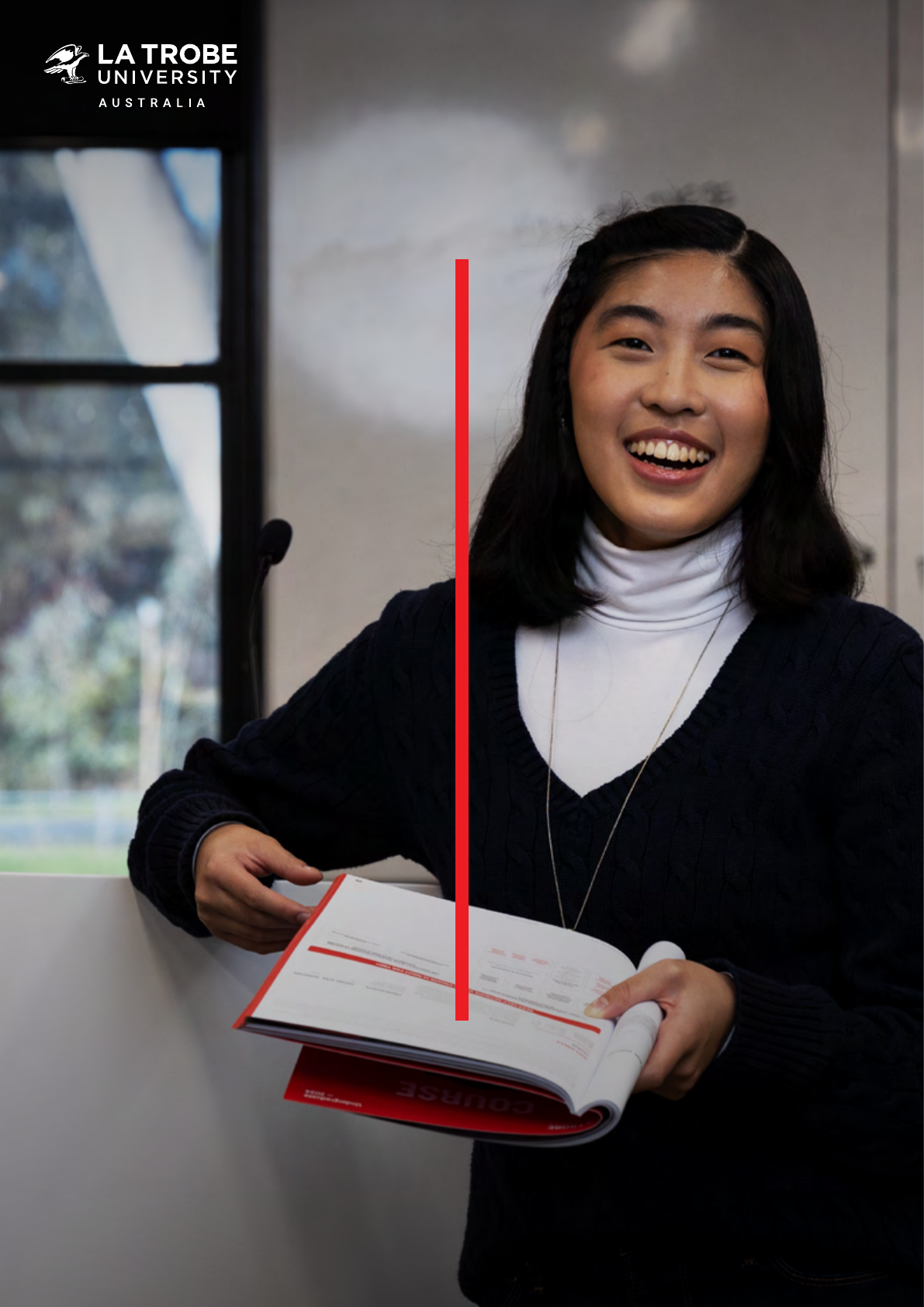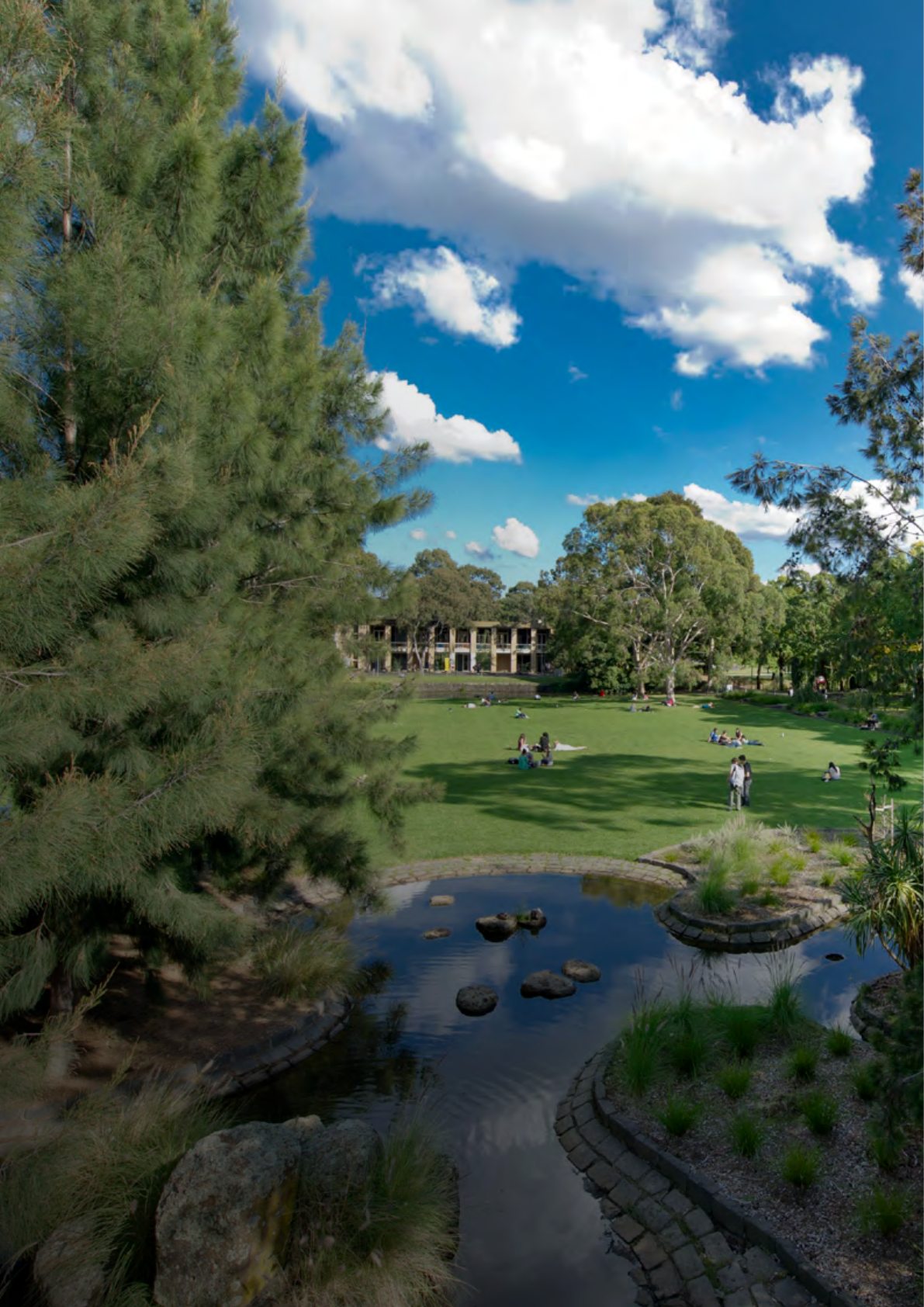
ACKNOWLEDGEMENT
OFCOUNTRY
La Trobe University acknowledges our
campuses are located on the lands of many
Traditional Custodians in Victoria and New
South Wales. We recognise their ongoing
connection to the land and value their unique
contribution to the University and wider
Australian society. La Trobe University is
committed to providing opportunities for
Aboriginal and Torres Strait Islander people,
both as individuals and communities, through
teaching, learning, research and partnerships
across all our campuses.
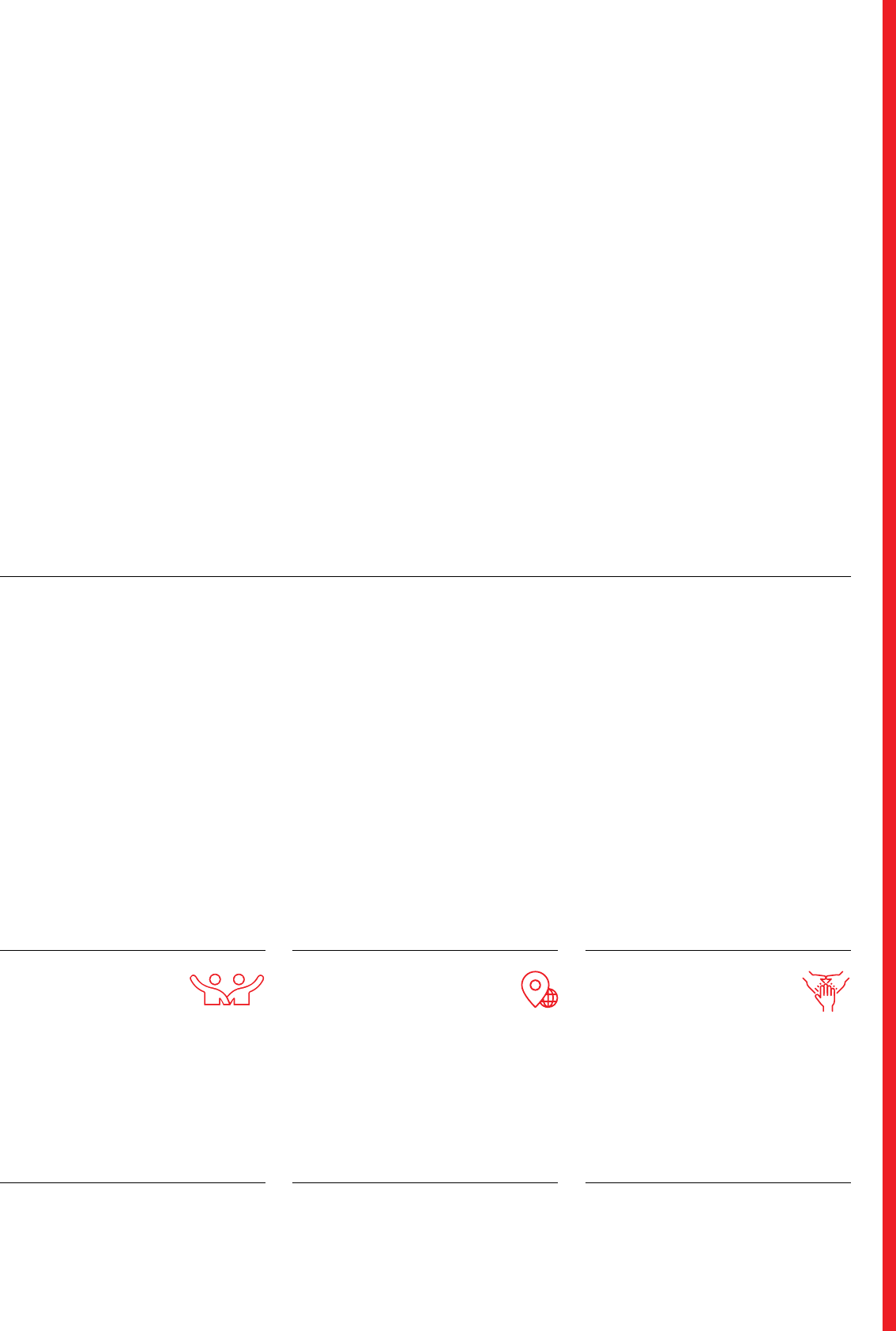
LOCATED IN ONE
OF THE MOST
STUDENT-FRIENDLY
CITIES WORLDWIDE
Feel welcome and live comfortably during
your studies, with Melbourne ranked #5 in
the world and #1 in Australia for the most
student-friendly city, with a rating of 93.3.
2
STUDYING AT LATROBE IS MORE THAN GETTING A GREAT EDUCATION –
ITGIVES YOU THE CHANCE TO IMMERSE YOURSELF DEEPLY IN AUSTRALIA’S
VAST CULTURES AND CONNECT TO ROBUST NATURAL WONDERS.
STUDY AMONG AUSTRALIAN
FLORAAND FAUNA
Our Melbourne (Bundoora) Campus
spreads over 267 hectares – that's 660
acres filled with not only state-of-the-art
learning facilities, but also plenty of green
spaces and the only university-based
wildlife sanctuary in the country.
Ever wanted to see a kangaroo? Or
a group of white and yellow cockatoos?
With many unique Australian animals
living on campus, you’ll be sure to
see some of them on your trip into
university, or even on your lunch break.
EMBRACE THE CULTURE CAPITAL
OFAUSTRALIA
Offering a diverse range of cuisines,
festivals, museums, galleries and sporting
events, Melbourne consistently ranks as
one of the world's most liveable cities.
This year, Melbourne ranked third globally
and first nationally, so you're sure to find
something to love about living in Melbourne.
1
With campuses in Melbourne's north and
the city CBD, you'll never be too far from
the city's bustling streets, lively laneways
and iconic landmarks, like Federation
Square and Flinders Street Station.
EXPLORE BEYOND THE
BEATEN TRACK
With four regional campuses located
away from the hustle and bustle
of the city, we’re lucky enough to
embrace the unique landscapes
and cultures of regional Victoria.
Bendigo Campus
Our campus is located in Flora Hill, an easy
3km drive or bike ride from the Bendigo
CBD. We're located next to the Greater
Bendigo National Park, which means that
even though we’re close to all the action
of the city, you’ll often see kangaroos on
campus! Take our virtual tour and see
the extensive facilities on campus.
OUR CAMPUS HAS
ITSOWN POSTCODE
Our Melbourne (Bundoora) Campus is the
largest metropolitan university campus
which means it even gets its own postcode
– 3086. With plenty of green space, sporting
facilities and a great selection of diverse
food options, you’ll have lots to explore.
A UNIQUELY
AUSTRALIAN STUDY
EXPERIENCE
latrobe.edu.au/international 1
YOU’LL HAVE
AUNIQUE EXPERIENCE
With campuses surrounded by native
wildlife, more than 70 clubs and societies
to join, and extensive support networks,
than what happens in the classroom.
1. The Economist, 2023, World's most liveable cities, Melbourne and Sydney bounce back up the world’s most liveable cities list
2. Quacquarelli Symonds (QS), 2023, QS Best Student Cities 2023
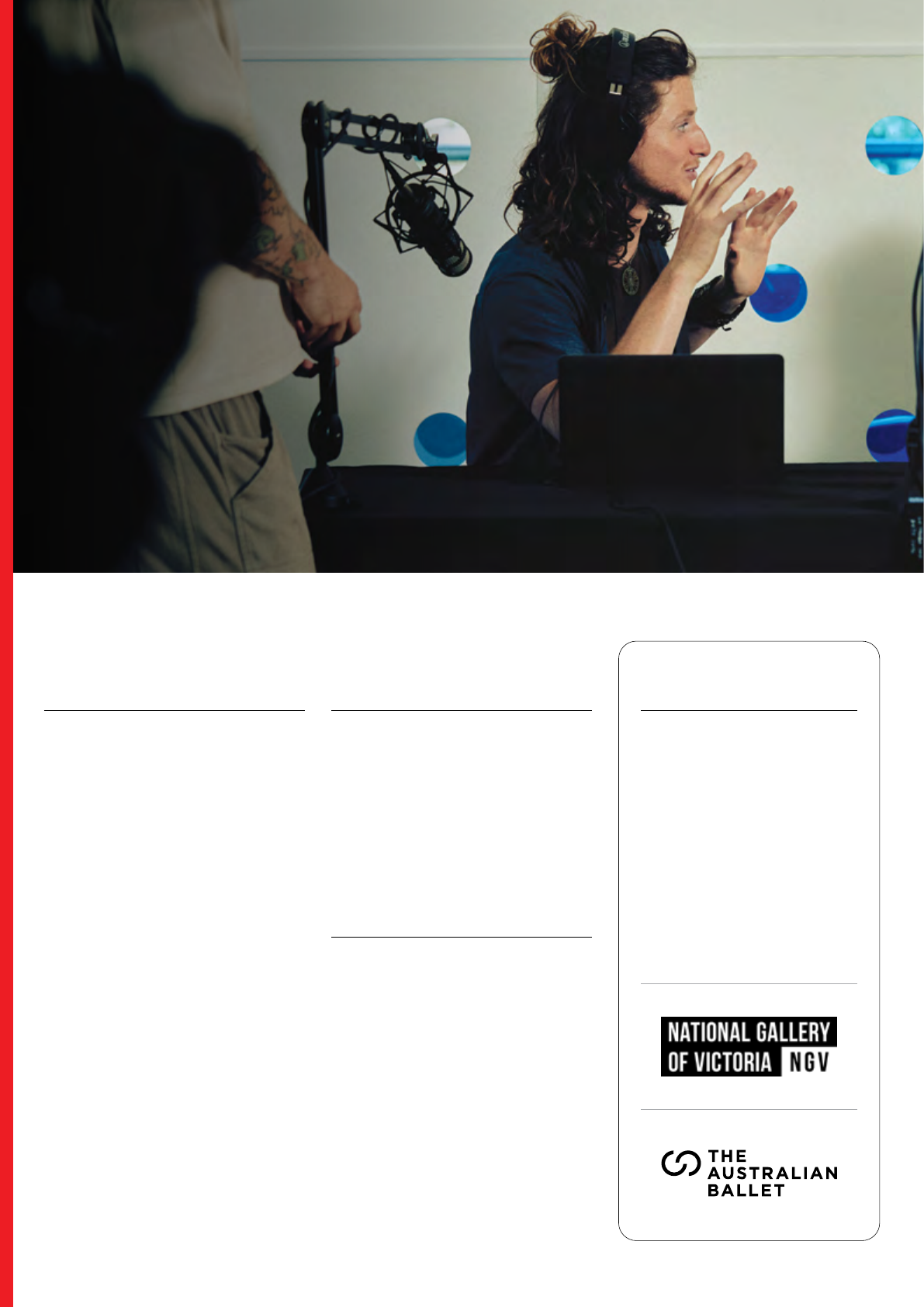
MAKE YOUR IMPACT WITH
INDUSTRY LEADERS
Whether you’re studying to do
something big for yourself or for
the world, doing it surrounded
by the best in their industries will
help you gain important insights.
With our vast network of industry
partners, you’ll have the opportunity
to build your professional network
and experience. Discover the inner
workings of the National Gallery
of Victoria (NGV) or undertake
ground-breaking research into
dancer health and wellbeing
with The Australian Ballet.
2
La Trobe University
ARTS, SOCIAL
SCIENCES &
COMMUNICATIONS
Are you a creative thinker? Refine your innovative
problem-solving skills to help work towards solving
1. Times Higher Education (THE), 2023, Impact Rankings
2023: decent work and economic growth
TURN YOUR PASSION
INTO A DEGREE
Shape your own future with an
interdisciplinary and flexible Bachelor
of Arts. Create your own path with an
incredible array of around 50 majors
and minors from humanities, social
sciences, business, health and science,
keeping your career options open.
Perhaps you want to tell stories that
matter with our Bachelor of Media and
Communication, or pursue your artistic
passion with a Bachelor of Visual Arts.
history with an undergraduate or
postgraduate archaeology degree, or
gain a multi-disciplinary perspective
on the political and economic systems
shaping our world with postgraduate
degrees in international relations
or international development.
No matter which path you choose,
you'll learn from world-class academics
and leading researchers. The world
is waiting for you. Step into it.
GET REAL
HUMAN SKILLS
We know that sometimes knowing
the subject matter isn’t enough, so at
to help you thrive in any workplace.
You’ll develop your ability to listen,
empathise and think critically.
Communicate your ideas. Lead
linguistically, culturally and
ethically diverse people. Create
opportunities wherever you are.
BUILD UP YOUR CV
At La Trobe you can start working
towards your dream career while you
study, so you’re ready to jump straight
into the area you’d like to work in.
With the option to add an industry
placement minor to your degree, you
can get real experience before you
graduate to become highly employable.
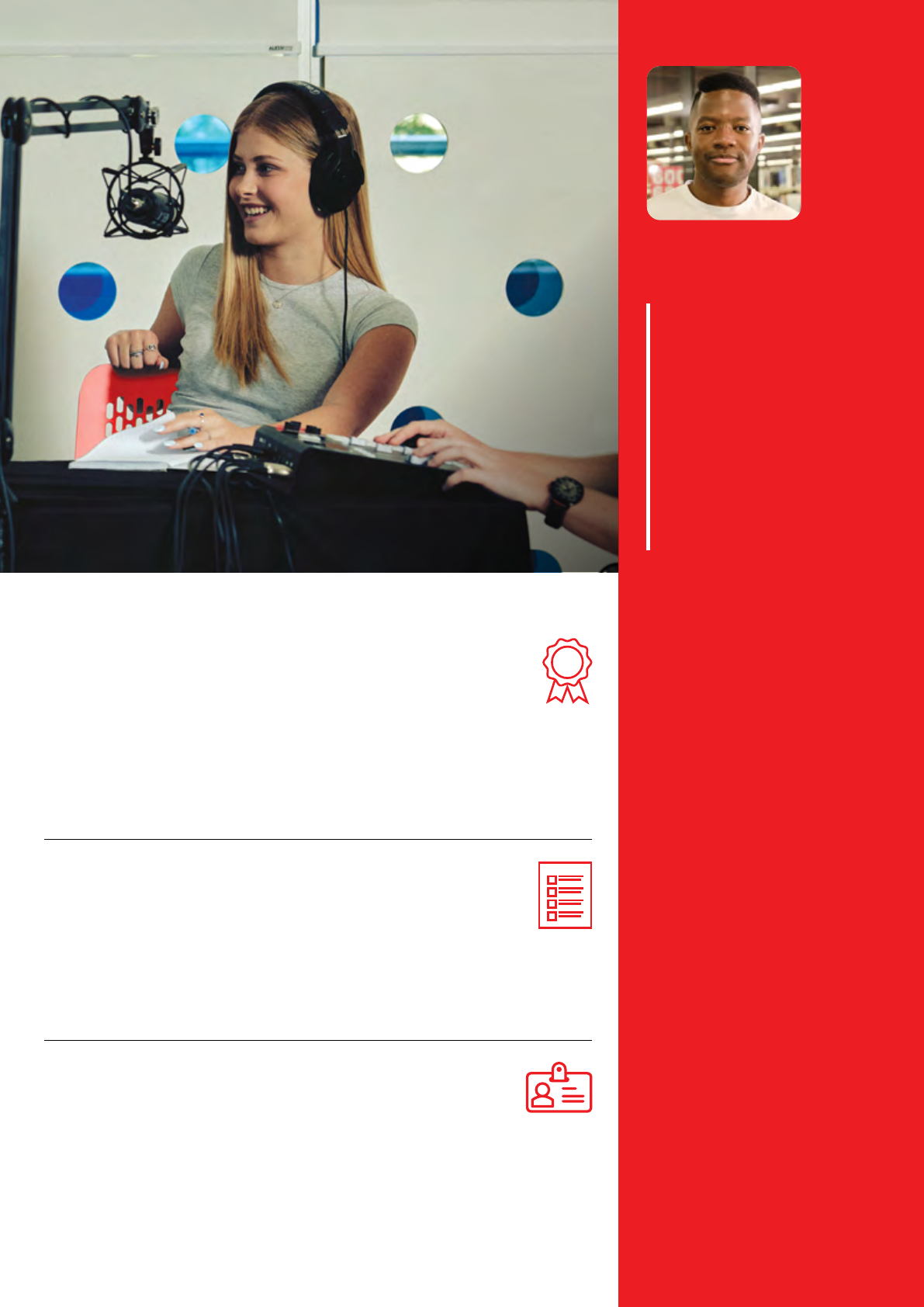
latrobe.edu.au/international 3
TOP 250 GLOBALLY
FORCOMMUNICATION
ANDMEDIA STUDIES
1
CHOOSE MAJORS, MINORS
AND ELECTIVES FROM
AROUND 50 INTEREST AREAS
PUT THEORY INTO PRACTICE
WITH PLACEMENTS IN
AUSTRALIA AND OVERSEAS
KEVIN K
Bachelor of Politics, Philosophy
and Economics student
I'VE SEEN HOW
INTERNATIONAL AND
INTERCONNECTED MY
CAREER COULD BE.
I'VE BEEN TO NEPAL
ON A STUDY TOUR,
SEEN POLITICIANS
WORK IN CANBERRA
AND ATTENDED MANY
CONFERENCES THAT
HAVE BETTERED
MYNETWORK.
I WANTED A
UNIVERSITY THAT
COULD EMBRACE
MY PERSONAL HOPE
AND CATER TO MY
NEEDS TO HELP ME
BE A GLOBAL CITIZEN.
I FEEL LIKE I'M
ALREADY ON MY WAY.
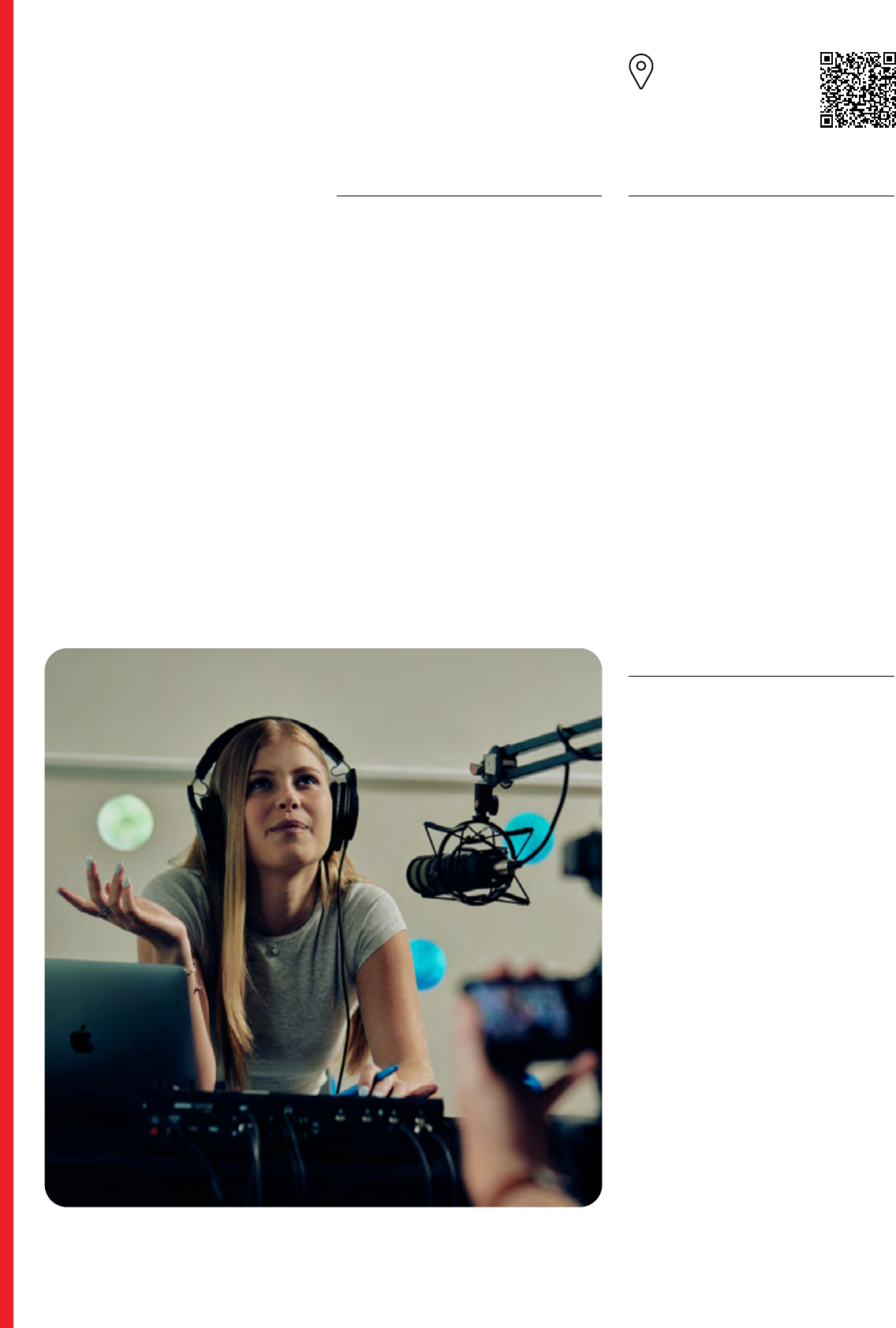
4
La Trobe University
BACHELOR
OF ARTS
Pursue your passion and your profession
with our flexible Bachelor of Arts. You can
choose from an incredible array of around 50
majors and minors from humanities, social
sciences, business, health and science,
keeping your career options open. Shape
your own future with this interdisciplinary
degree. You’ll choose one arts major, then
explore your interests or build an essential
skill when you choose secondary majors,
minors and electives from across the
university. You’ll graduate with your primary
major on your academic transcript, so your
future employers recognise your expertise.
No matter which path you choose, you’ll
learn from world-class academics and
leading researchers.
ENTRY REQUIREMENTS*
– China Senior Middle School 3: 90%
– China National College Entrance
Examination: 60%
– All Indian Secondary School
Certificate: 70%
– India State Boards: 70%
– Vietnam Upper Secondary School
Diploma: 7.5
These entry requirements are for the
Melbourne (Bundoora) Campus. To see entry
requirements for other campuses, or specific
entry requirements for your country, please
visit the course page on our website.
English language requirement
– 6.0 IELTS (Academic) with no individual
band less than 6.0.
Subject prerequisites
– Units 3 and 4: a study score of at least 25
in English (EAL) or at least 20 in English
other than EAL.
SAMPLE COURSE STRUCTURE
Year 1 requires the completion of 120 credit
points including:
– 30 credit points from chosen major
– 30 credit points from chosen electives,
major or minor
– 30 credit points from chosen electives
or minor
– 30 credit points from chosen electives
or minor
Year 2 requires the completion of 120 credit
points including:
– 30 credit points from chosen major
– 30 credit points from chosen electives,
major or minor
– 30 credit points from chosen electives
or minor
– 30 credit points from chosen electives
or minor
Year 3 requires the completion of 120 credit
points including:
– 60 credit points from chosen major
– 60 credit points from chosen electives
or major
CAREER OPPORTUNITIES
After graduation, you could pursue a variety
of rewarding careers across a range of
industries, including the arts, government
and not-for-profit sectors. Your choice of
majors and minors will guide the types of
roles available to you. Here's a small handful
of possible roles you could pursue:
– human rights advocate
– policy analyst
– community development manager
– historian
– digital content producer
– communications adviser.
Location:
MEL
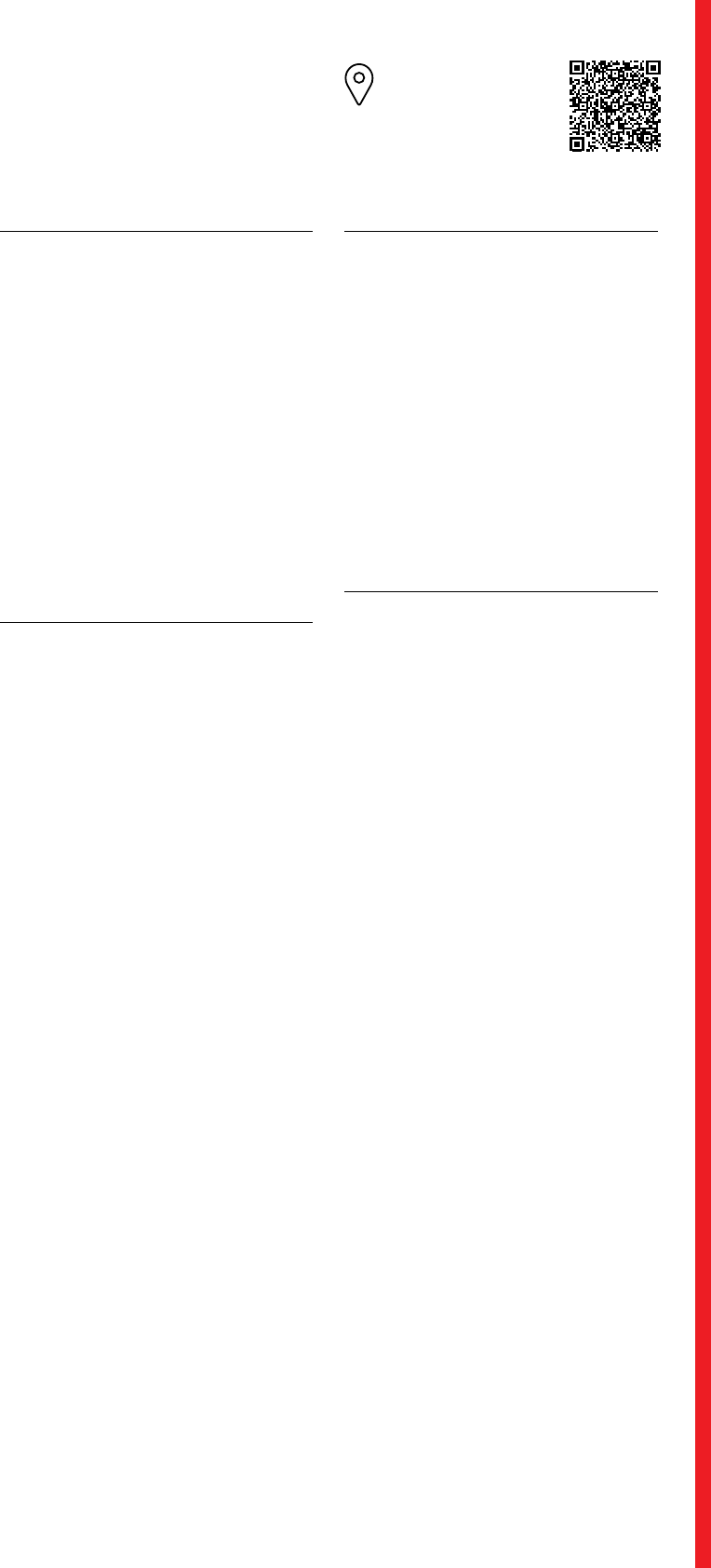
latrobe.edu.au/international 5
MASTER OF INTERNATIONAL
DEVELOPMENT
As inequality continues to increase around
the world, we desperately need more
skilled professionals who understand the
complexities of the development sector and
who can help fight this alarming trend.
If you’re passionate about supporting our
world’s most vulnerable communities, La
Trobe’s Master of International Development
will give you strong foundations to advance
your career in the humanitarian and
development sector.
Build a meaningful career and learn how to
create sustainable, positive change in areas
where we need it most. You’ll learn from
experienced experts as you choose from a
wide range of specialisations and specially
curated electives, allowing you to pursue
your passion.
You’ll learn how to build strong relationships
in the development sector and will have
the opportunity to undertake an internship
or placement with a local or international
development organisation, helping you to
further build your skills and networks.
ENTRY REQUIREMENTS*
Prerequisites
– Successful completion of an Australian
Bachelor degree (or equivalent).
Prior learning developed through
relevant work experience or professional
accreditation, where it is deemed to be at
least equivalent to that obtained through
a Bachelor's degree, may be considered.
In making an offer to an applicant, the
University will give consideration to a range
of factors, including academic record, English
proficiency and/or employment experience.
English language requirement
–
SAMPLE COURSE STRUCTURE
Year 1 requires the completion of 120 credit
points including:
– 120 credit points from chosen core
Year 2 requires the completion of 120 credit
points including:
– 60 credit points from chosen
specialisation
– 60 credit points from chosen electives
or specialisation
CAREER OPPORTUNITIES
After graduation, you could work across
a wide range of organisations, including
multilateral development organisations,
government and intergovernmental
agencies, media organisations and
not-for-profits, community-based and
non-government organisations, and research
or training institutions.
Possible roles include:
– project manager
– humanitarian delegate
– policy analyst
– humanitarian/emergency relief officer
– campaign or advocacy manager.
SPECIALISATIONS
– Advanced research (MEL)
– Community inclusion and public
health (MEL)
– Economic management (MEL)
– Security and governance (MEL)
* Entry requirements are only provided as a guide and, for undergraduate courses, based on the primary measure for entry into most undergraduate university courses in Australia, the Australian
REAL-WORLD
EXPERIENCE
Put theory into practice with professional
work placements.
Location:
MEL
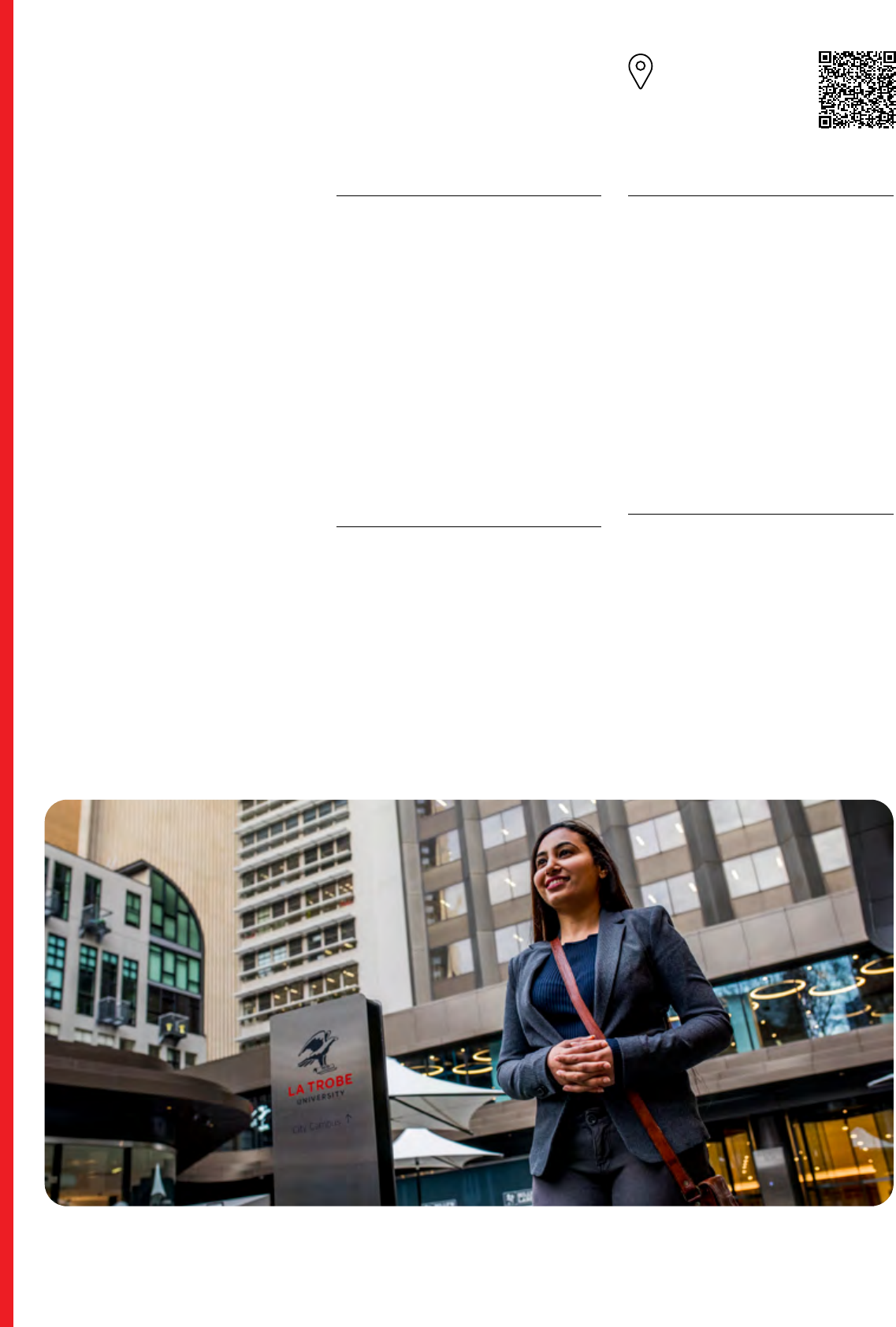
6
La Trobe University
* Entry requirements are only provided as a guide and, for undergraduate courses, based on the primary measure for entry into most undergraduate university courses in Australia, the Australian
Location:
MEL
MASTER OF INTERNATIONAL
RELATIONS
If you’re keen to address the biggest
global challenges of our time, La Trobe's
Master of International Relations will give
you the interdisciplinary skillset to make
a real difference.
Develop a solid grounding in international
political theory and learn how to navigate
the complex power dynamics between
governments, multilateral organisations,
international businesses and INGOs.
The Master of International Relations is
a two-year, full-time degree. However,
you could complete your degree in just
1 or 1.5 years (equivalent full-time study)
if you’ve completed previous study or
have experience in a related field.
Learn from high-profile academic staff
who are frequently quoted in local and
international media. You'll graduate with
the skills to navigate global issues and
create positive change.
ENTRY REQUIREMENTS*
Prerequisites
– Successful completion of an Australian
Bachelor degree (or equivalent).
Prior learning developed through
relevant work experience or professional
accreditation, where it is deemed to be at
least equivalent to that obtained through
a Bachelor's degree, may be considered.
In making an offer to an applicant, the
University will give consideration to a range
of factors, including academic record, English
proficiency and/or employment experience.
English language requirement
–
SAMPLE COURSE STRUCTURE
Year 1 requires the completion of 120 credit
points including:
– 120 credit points from chosen core
Year 2 requires the completion of 120 credit
points including:
– 60 credit points from chosen
specialisation
– 60 credit points from chosen electives
or specialisation
CAREER OPPORTUNITIES
After graduation, you'll be prepared for a
career in international diplomacy, foreign
policy, governance, industry affairs, and
local and international development. Work
in Australia or overseas, with opportunities
in non-government organisations and
government agencies such as state
governments, the Department of Defence,
and the Department of Foreign Affairs
and Trade.
You could build a career in fields including:
– foreign affairs
– international trade
– policy analyst
– humanitarian support.
SPECIALISATIONS
– Advanced research (MEL)
– Community inclusion and public
health (MEL)
– Economic management (MEL)
– International development practice (MEL)
– Leadership and practice (MEL)
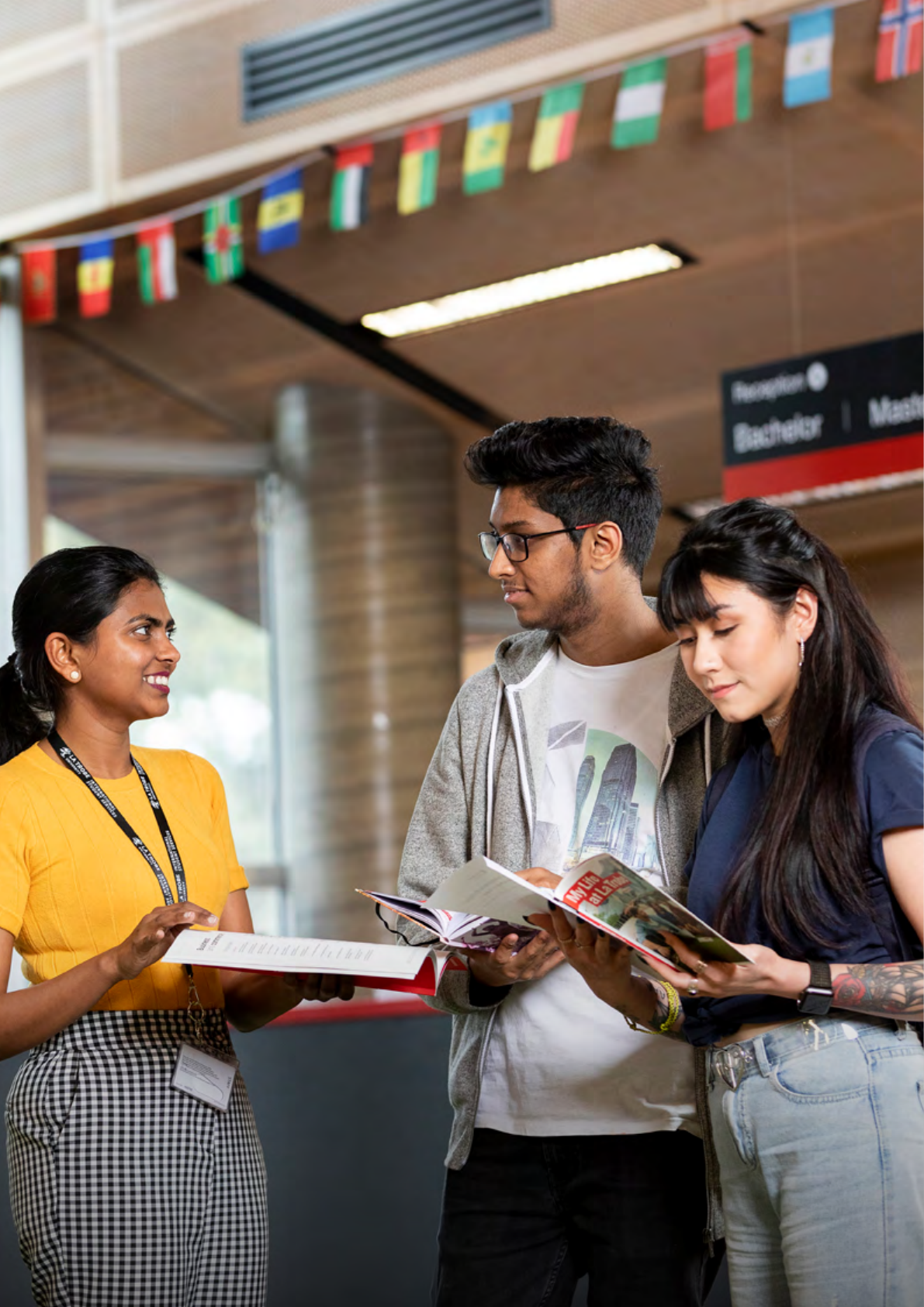
latrobe.edu.au/international 7
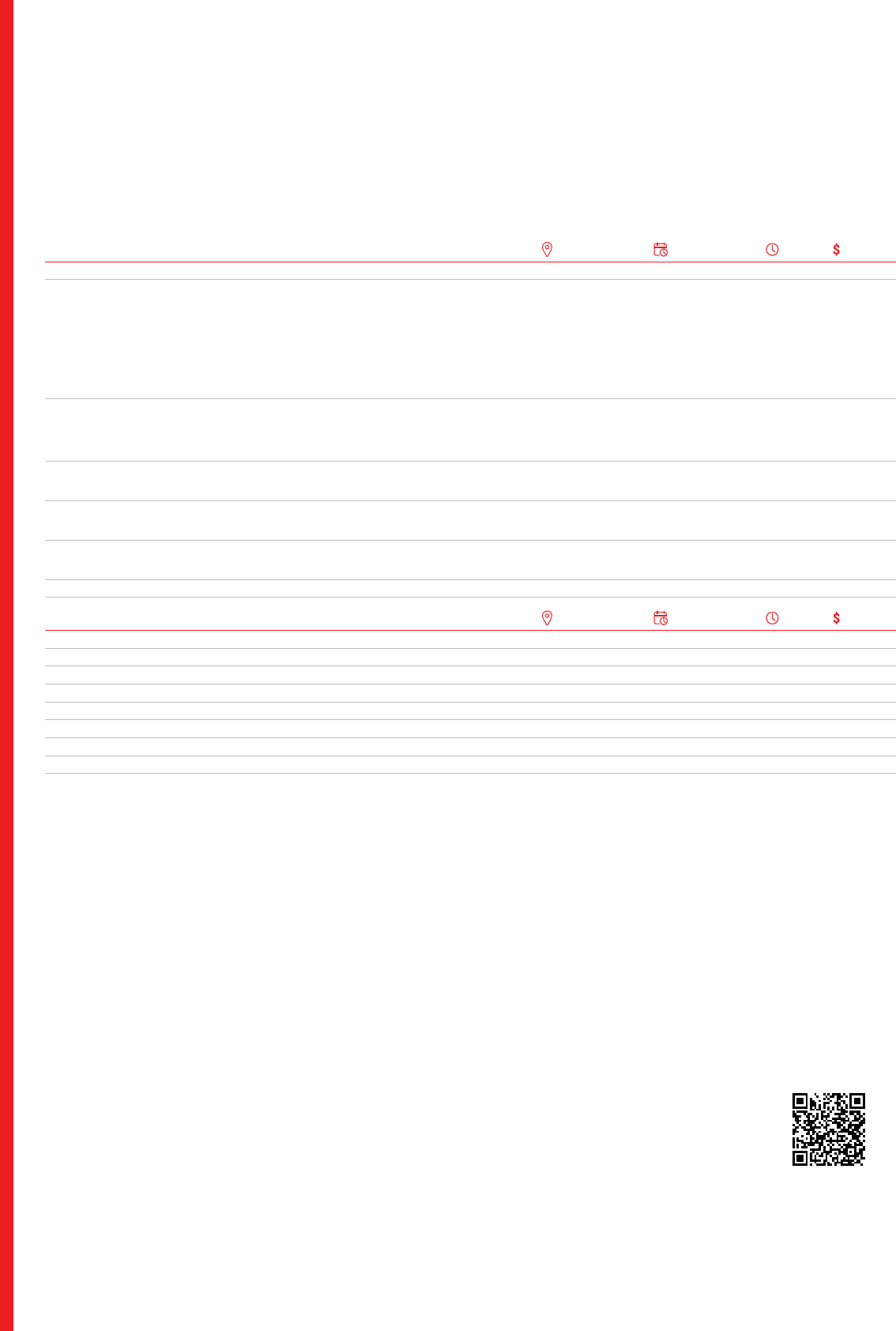
8
La Trobe University
ARTS, SOCIAL SCIENCES
& COMMUNICATIONS
UNDERGRADUATE
Bachelor’s degrees CRICOS
Bachelor of Archaeology
0100732 MEL Sem 1, Sem 2 3 years 32 600
Bachelor of Arts
Majors: Aboriginal studies (MEL), Anthropology (MEL), Archaeological and heritage studies
(MEL), Asian studies (MEL), Chinese studies (MEL), Classics and ancient history (MEL),
Creative and professional writing (MEL), Crime, justice and legal studies (MEL), Digital media
(MEL), English (MEL), Environmental humanities (MEL), Ethics and social justice (MEL),
French studies (MEL), Gender, sexuality and diversity studies (MEL), Greek studies (MEL),
Hindi studies (MEL), History (MEL), Human geography (MEL), International studies (MEL),
Italian studies (MEL), Japanese studies (MEL), Linguistics (MEL), Philosophy (MEL), Politics
(MEL), Psychological science (A-W, BEN, MEL), Sociology (MEL), Spanish studies (MEL),
Sustainability and development (MEL), Visual cultures (MEL)
002080A MEL Sem 1, Sem 2 3 years 32 600
Bachelor of Global Studies
Majors:
(MEL), French studies (MEL), Government and policy (MEL), Greek studies (MEL), Hindi
studies (MEL), Human rights (MEL), International relations (MEL), Italian studies (MEL),
Japanese studies (MEL), Spanish studies (MEL), Sustainability and development (MEL)
106465H MEL Sem 1, Sem 2 3 years 33 400
Bachelor of Languages and Linguistics
Majors: Chinese studies (MEL), French studies (MEL), Greek studies (MEL), Hindi studies
(MEL), Italian studies (MEL), Japanese studies (MEL), Spanish studies (MEL)
0100735 MEL Sem 1, Sem 2 3 years 32 600
Bachelor of Media and Communication
Majors: Creative and professional writing (MEL), Journalism (MEL), Marketing (BEN, MEL,
SYD), Media industries (MEL), Sports media (MEL)
086278C MEL Sem 1, Sem 2 3 years 34 800
Bachelor of Politics, Philosophy and Economics
Majors: Economics (MEL), Philosophy (MEL), Political economy (MEL), Political philosophy
(MEL), Politics (MEL)
071901G MEL Sem 1, Sem 2 3 years 33 800
Bachelor of Visual Arts
110457G BEN Sem 1, Sem 2 3 years 34 400
Double degrees CRICOS
Bachelor of Arts/Bachelor of Health Sciences
025959E MEL Sem 1, Sem 2 4 years 36 400
Bachelor of Arts/Bachelor of Science
106838F MEL Sem 1, Sem 2 4 years 39 000
Bachelor of Commerce/Bachelor of Arts
084537E MEL Sem 1, Sem 2 4 years 39 400
Bachelor of Commerce/Bachelor of Global Studies
106768D MEL, BEN Sem 1, Sem 2 4 years 39 400
Bachelor of Laws (Honours)/Bachelor of Arts
107090D MEL Sem 1, Sem 2 5 years 40 600
Bachelor of Laws (Honours)/Bachelor of Global Studies
106772H MEL Sem 1, Sem 2 5 years 40 600
Bachelor of Laws (Honours)/Bachelor of Media and Communication
106774F MEL Sem 1, Sem 2 5 years 40 600
Bachelor of Laws (Honours)/Bachelor of Politics, Philosophy and Economics
107091C MEL Sem 1, Sem 2 5 years 40 600
TOP 150
GLOBALLY
We're ranked in the world's top 150 for
archaeology, sociology and linguistics.
1
GOT QUESTIONS?
CONTACT OUR
COURSE ADVISORS
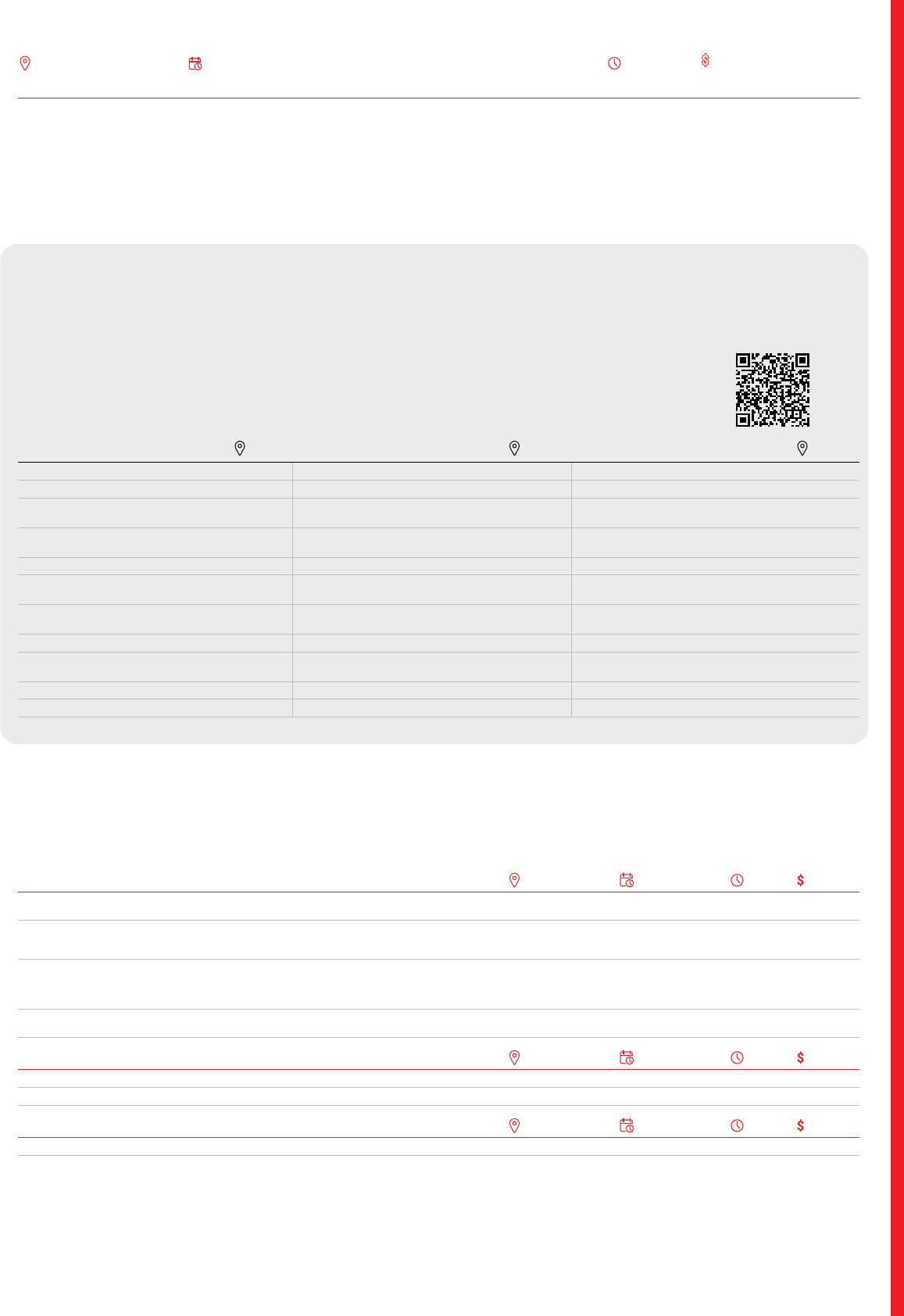
latrobe.edu.au/international 9
POSTGRADUATE
Master's degrees CRICOS
Master of Archaeology
Specialisations: Advanced research (MEL), Professional archaeology (MEL)
107140K MEL Sem 1, Sem 2 2 years 37 400
Master of International Development
Specialisations: Advanced research (MEL), Community inclusion and public health (MEL),
Economic management (MEL), Security and governance (MEL)
079183B MEL Sem 1, Sem 2 2 years 36 800
Master of International Relations
Specialisations: Advanced research (MEL), Community inclusion and public health (MEL),
Economic management (MEL), International development practice (MEL), Leadership and
practice (MEL)
079184A MEL Sem 1, Sem 2 2 years 36 800
Master of Planning
Specialisations: Community planning (BEN), Urban and regional planning (BEN)
107134H BEN Sem 1, Sem 2 2 years 35 600
Graduate Diplomas CRICOS
Graduate Diploma in Planning
107136F BEN Sem 1, Sem 2 1 year 35 600
Graduate Diploma of Archaeology
107139C MEL Sem 1, Sem 2 1 year 37 400
Graduate Certificates CRICOS
Graduate Certicate of Archaeology
091422B MEL Sem 1 6 months 18 700
2
Please note:
Some courses have additional costs and details such as intake dates may vary between campuses or change throughout the year. Other courses and majors may require you to transfer to
another campus at some stage during your course. The most complete and up-to-date course information can be found on the La Trobe website, so make sure you confirm all course details
before submitting your application.
1. Quacquarelli Symonds (QS), 2023, QS World University Rankings
by Subject 2023: Sociology / Archaeology / Linguistics
2. Price for full course duration (per 60 credit points)
CHOOSE YOUR MAJORS
If your preferred course requires selection of a major, choose your first major (also known as your cognate major) from those listed under your course. Then,
customise your degree by adding an optional second major from your course or any open access major from arts, social sciences and communications or a
completely different discipline like business and commerce, health, IT or science.
DESIGN YOUR DEGREE: OPEN ACCESS MAJORS
Open access majors from a range of disciplines are available to all undergraduate students with enough spare credit points
in their course and space in their timetable. You’ll be supported in selecting your majors when you enrol, but if you need help
designing your degree, submit an online enquiry to our course advisers or visit our website.
The following majors from arts, social sciences and communications are available to all undergraduate students in eligible courses:
Aboriginal studies
MEL
English
MEL
International relations
MEL
Anthropology
MEL
Environmental humanities
MEL
International studies
MEL
Archaeological and heritage studies
MEL
Ethics and social justice
MEL
Italian studies (Beginners,
Intermediate, Advanced & Extension)
MEL
Asian politics and security
MEL
French studies (Beginners,
Intermediate, Advanced & Extension)
MEL
Japanese studies (Beginners,
Intermediate & Advanced)
MEL
Asian studies
MEL
Gender, sexuality and diversity studies
MEL
Linguistics
MEL
Chinese studies (Beginners,
Intermediate, Advanced & Extension)
MEL
Government and policy
MEL
Philosophy
MEL
Classics and ancient history
MEL
Greek studies (Beginners,
Intermediate, Advanced & Extension)
MEL
Politics
MEL
MEL
Hindi studies (Beginners)
MEL
Sociology
MEL
Creative and professional writing
MEL
History
MEL
Spanish studies (Beginners,
Intermediate, Advanced & Extension)
MEL
Crime, justice and legal studies
MEL
Human geography
MEL
Sustainability and development
MEL
Digital media
MEL
Human rights
MEL
Visual cultures
MEL
Campus location and course code Term 1 (Jan), Sem 1/Term 2 (Mar), Term 3 (Apr), Sem 2/Term 4 (Jul), Term 5 (Sept), Term 6 (Nov) Course duration Indicative annual tuition fee in AU$
CRICOS Course CRICOS registration code MEL Melbourne BEN Bendigo A-W Albury-Wodonga MIL Mildura SHP Shepparton SYD Sydney CTY City EPP Epping (Melbourne Polytechnic)
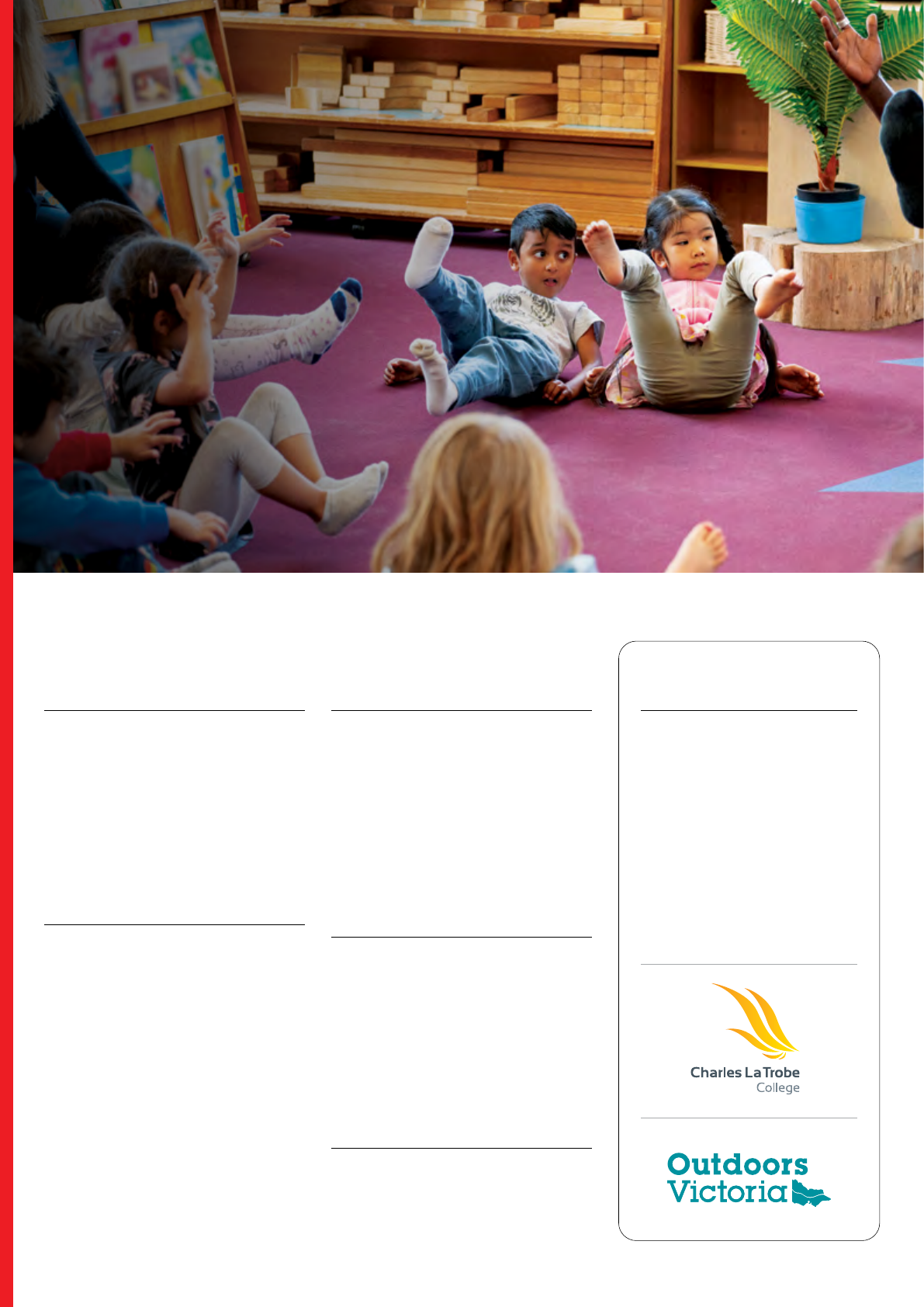
10
La Trobe University
EDUCATION
& TEACHING
As the bridge between childhood and adult life,
teachers offer a unique opportunity to help shape
our next generation of thinkers, doers and dreamers.
FIND YOUR SPECIALITY
Whether you want to study primary,
secondary or early childhood education –
or outdoor and sustainability education
– there’s an option for everyone.
With an estimated national teacher
shortage of 4,000 Australian teachers by
2025
1
, there’s never been a better time to
become a teacher.
DON’T KNOW WHAT KIND OF
TEACHER YOU WANT TO BE?
We've enhanced our education courses
to give you the choice, flexibility
and support you need to shape the
future of the next generation.
Whether you’re studying a Bachelor
or Master of Education, you'll explore
all aspects of teaching and choose a
major or specialisation of your choice.
In your second year, you'll get to choose
to major in primary, secondary, or early
childhood and primary teaching.
ENHANCED LEARNING EXPERIENCE
With our School of Education Quality
Learning Model, you can learn through
a mix of face-to-face and online
classes. You’ll learn the theory online
and then practice in the classroom.
Build relationships with your peers, our
academic staff and industry professionals,
as well as your community. Our approach
is all about putting students at the
centre of the learning experience.
THE SCIENCE OF LEARNING
Become an expert in the many ways
humans learn. The latest science
is embedded in our curriculum
and student experience.
You’ll have access to expert knowledge
and applied theory, evidence and data
interpretation. You’ll understand why
and how people learn, so you’ll be
prepared for any teaching challenge.
TAKE YOUR QUALIFICATION FURTHER
Do you already have an undergraduate
degree and want to become the best teacher
you can be? Our Master of Teaching (Primary)
and Master of Teaching (Secondary) can
help you take your career to the next step.
BUILD EXPERIENCE
WHILE YOU STUDY
Through our network of diverse
school placements, you’ll gain
real-world experience in a variety
of educational settings and learn
how to create safe and inclusive
learning spaces for students.
Our commitment to preparing
students for the world of work
has earned us a spot in the top
20 worldwide for our share of
students taking work placements,
our employment practices,
and our research on economic
growth and employment.
2
1. Department of Education, 2022, Issues Paper:
Teacher Workforce Shortages
2. Times Higher Education (THE), 2023, Impact Rankings
2023: decent work and economic growth
3. Quacquarelli Symonds (QS), 2022, QS World University
Rankings by Subject 2023: Education & Training
4. Times Higher Education (THE), 2023, Impact Rankings 2023
5. Times Higher Education (THE), 2023, Impact
Rankings 2023: quality education
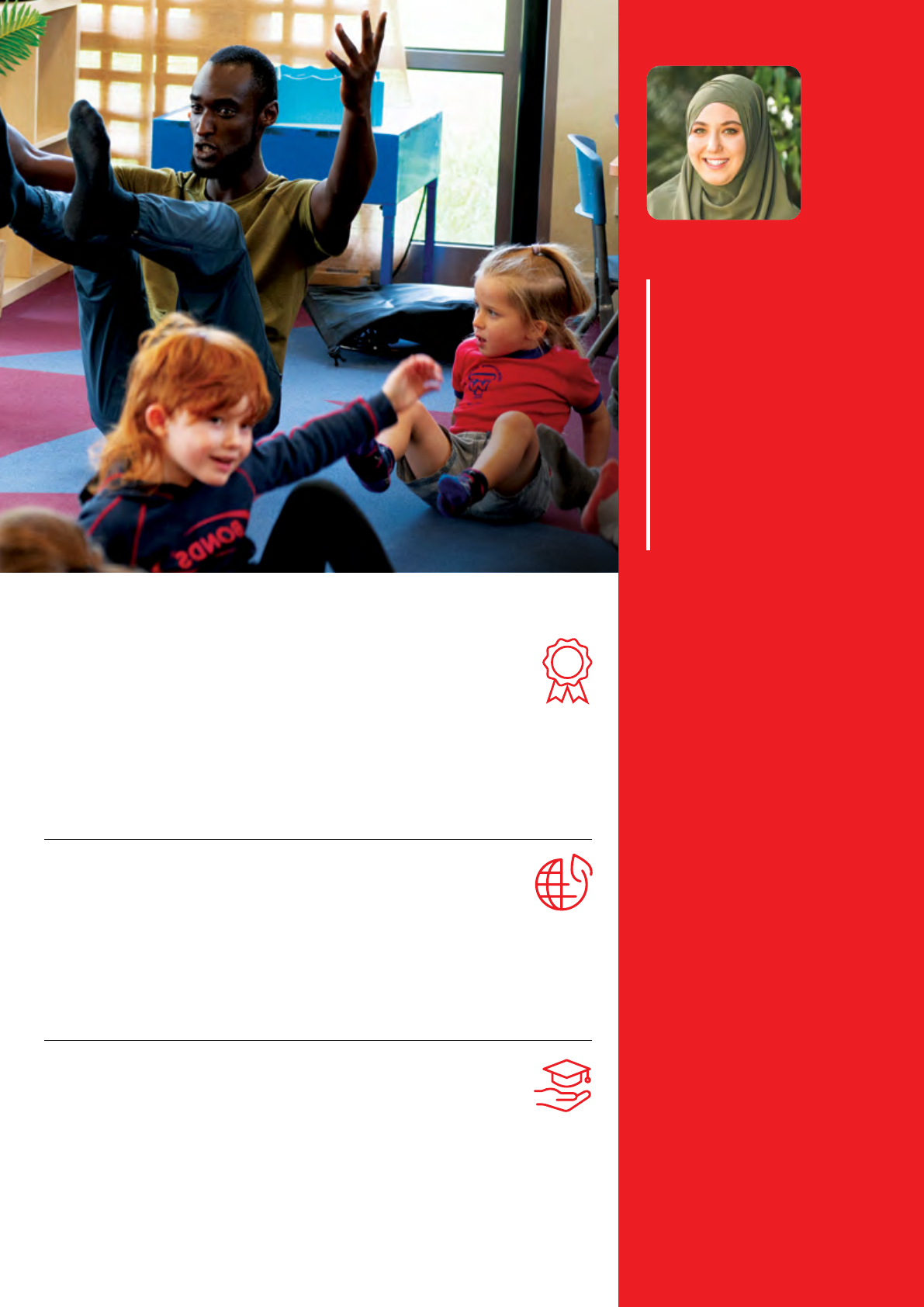
latrobe.edu.au/international 11
I CHOSE EDUCATION
AT LA TROBE
BECAUSE OF MY
PASSION FOR BEING
AROUND YOUNG,
BRIGHT INDIVIDUALS,
AND FOR TEACHING
THEM TO BECOME
THE BEST VERSION
OF THEMSELVES.
WITH THE LEVEL
OF SUPPORT WE
RECEIVE FROM OUR
TEACHING STAFF AND
THE NETWORKING
OPPORTUNITIES
AVAILABLE, I TRULY
BELIEVE WE’LL
ALL HAVE GREAT
TEACHING CAREERS.
SALIHA Z G
Bachelor of Education (Secondary)
OUR EDUCATION SUBJECTS
ARE RANKED IN THE
TOP250 WORLDWIDE
3
TOP 100 UNIVERSITIES WORLDWIDE
FOR OUR WORK TO ADVANCE THE UN’S
SUSTAINABLE DEVELOPMENT GOALS
4
WE’RE IN THE TOP 200
UNIVERSITIES WORLDWIDE
FOR QUALITY EDUCATION
5
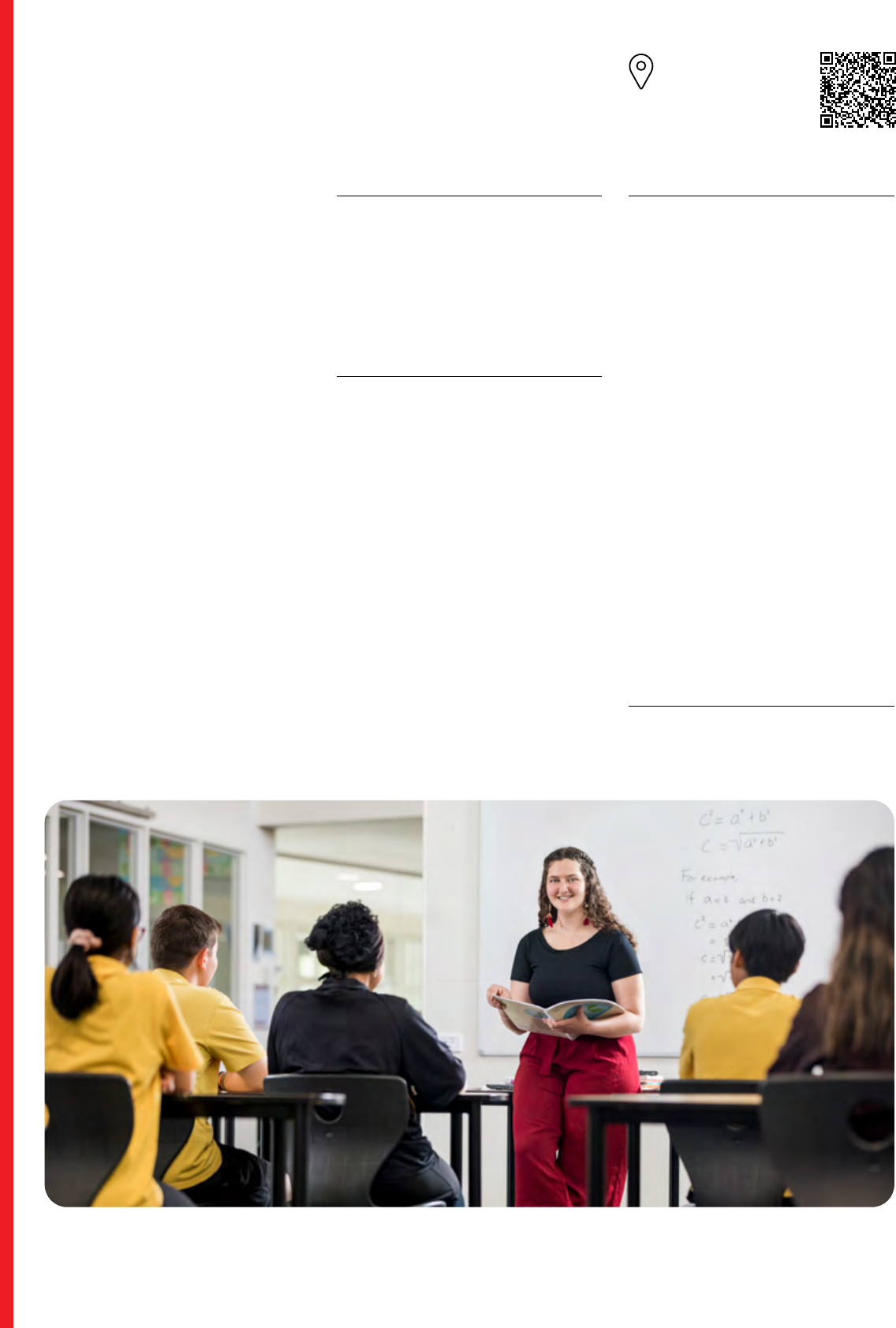
* Entry requirements are only provided as a guide and, for undergraduate courses, based on the primary measure for entry into most undergraduate university courses in Australia, the Australian
12
La Trobe University
If you’re passionate about continual learning
and are ready to advance your career, our
Master of Education will provide you with
the latest in educational best practice and
the professional networks to move into
leadership or specialist positions.
Explore the big issues in education
today. You’ll delve into core subjects in
educational leadership, psychology and
digital technologies, then dig deeper through
a specialisation in inclusion and diversity,
leadership and management, or language
and literacy.
With our Master of Education, you could
graduate faster. You could complete your
degree in just one year (equivalent full-time
study) if you’ve completed previous study.
Explore diversity in educational contexts and
plan for socially just and inclusive education,
then graduate ready to take the next big
step in your career.
ENTRY REQUIREMENTS*
Prerequisites
– Successful completion of an Australian
Bachelor’s degree (or equivalent).
English language requirement
– 6.5 IELTS (Academic) with no individual
band less than 6.0.
SAMPLE COURSE STRUCTURE
Year 1 requires the completion of 120 credit
points including:
– 60 credit points from chosen core
– 60 credit points from chosen electives
Year 2 requires the completion of 120 credit
points including:
– 30 credit points from chosen capstone
– 30 credit points from chosen core
– 60 credit points from
chosen specialisation
CAREER OPPORTUNITIES
After graduation, you'll be equipped to find
work in educational leadership, community
development, workplace mentoring, industry
innovation, as well as online and offline
social networks.
Possible roles include:
– School principal
Oversee the educational and
administrative aspects of primary and
secondary schools.
– Leading teacher
Contribute to the overall leadership in
schools and oversee the development
of curricula.
– Inclusive education coordinator
Support students with learning difficulties
and disabilities. Promote students'
social, emotional, intellectual and
physical development.
– Learning designer
Use strategic thinking to lead the
design and implementation of
educational programs.
– Education manager
Oversee educational policy. Provide
advice and support to staff and students
in educational institutions.
SPECIALISATIONS
– Inclusion and diversity (MEL)
– Language and literacy (MEL)
– Leadership and management (MEL)
MASTER OF
EDUCATION
Location:
MEL
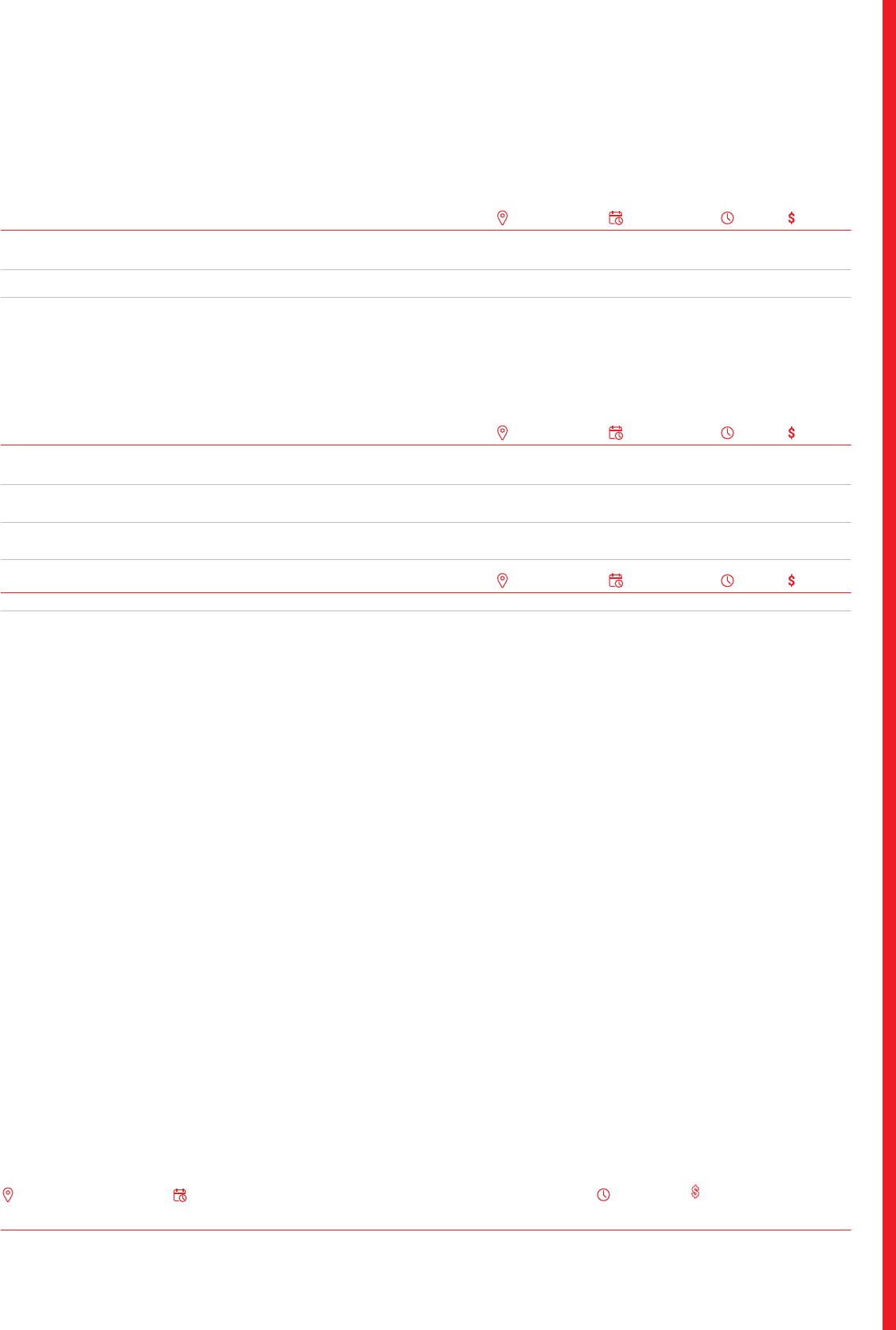
EDUCATION
& TEACHING
UNDERGRADUATE
POSTGRADUATE
Bachelor’s degrees CRICOS
Bachelor of Education
Majors: Early childhood and primary (A-W, BEN, MEL, MIL, SHP), Primary (A-W, BEN, MEL, MIL,
SHP), Secondary (A-W, BEN, MEL, MIL, SHP)
110999K
A-W, BEN, MEL, MIL,
SHP
Sem 1, Sem 2 4 years 34 000
Bachelor of Outdoor and Sustainability Education
Majors: Outdoor education (BEN)
106466G BEN Sem 1 3 years 33 400
Master's degrees CRICOS
Master of Education
Specialisations: Inclusion and diversity (MEL), Language and literacy (MEL), Leadership and
management (MEL)
011412M MEL Sem 1, Sem 2 2 years 34 400
Master of Teaching (Primary)
111393K
A-W, BEN, MEL, MIL,
SHP
Sem 1, Sem 2
2 years,
1.5 years
accelerated
34 600
Master of Teaching (Secondary)
111395H
A-W, BEN, MEL, MIL,
SHP
Sem 1, Sem 2
2 years,
1.5 years
accelerated
34 600
Graduate Diplomas CRICOS
Graduate Diploma in Education
106756H MEL Sem 1, Sem 2 1 year 34 400
LOCAL WORK
PLACEMENTS
Make connections and experience what it’s like to
help a child overcome a difficult maths problem or
inspire a teen to follow their passion in placements
with our industry partners.
latrobe.edu.au/international 13
Please note:
Some courses have additional costs and details such as intake dates may vary between campuses or change throughout the year. Other courses and majors may require you to transfer to
another campus at some stage during your course. The most complete and up-to-date course information can be found on the La Trobe website, so make sure you confirm all course details
before submitting your application.
Campus location and course code Term 1 (Jan), Sem 1/Term 2 (Mar), Term 3 (Apr), Sem 2/Term 4 (Jul), Term 5 (Sept), Term 6 (Nov) Course duration Indicative annual tuition fee in AU$
CRICOS Course CRICOS registration code MEL Melbourne BEN Bendigo A-W Albury-Wodonga MIL Mildura SHP Shepparton SYD Sydney CTY City EPP Epping (Melbourne Polytechnic)
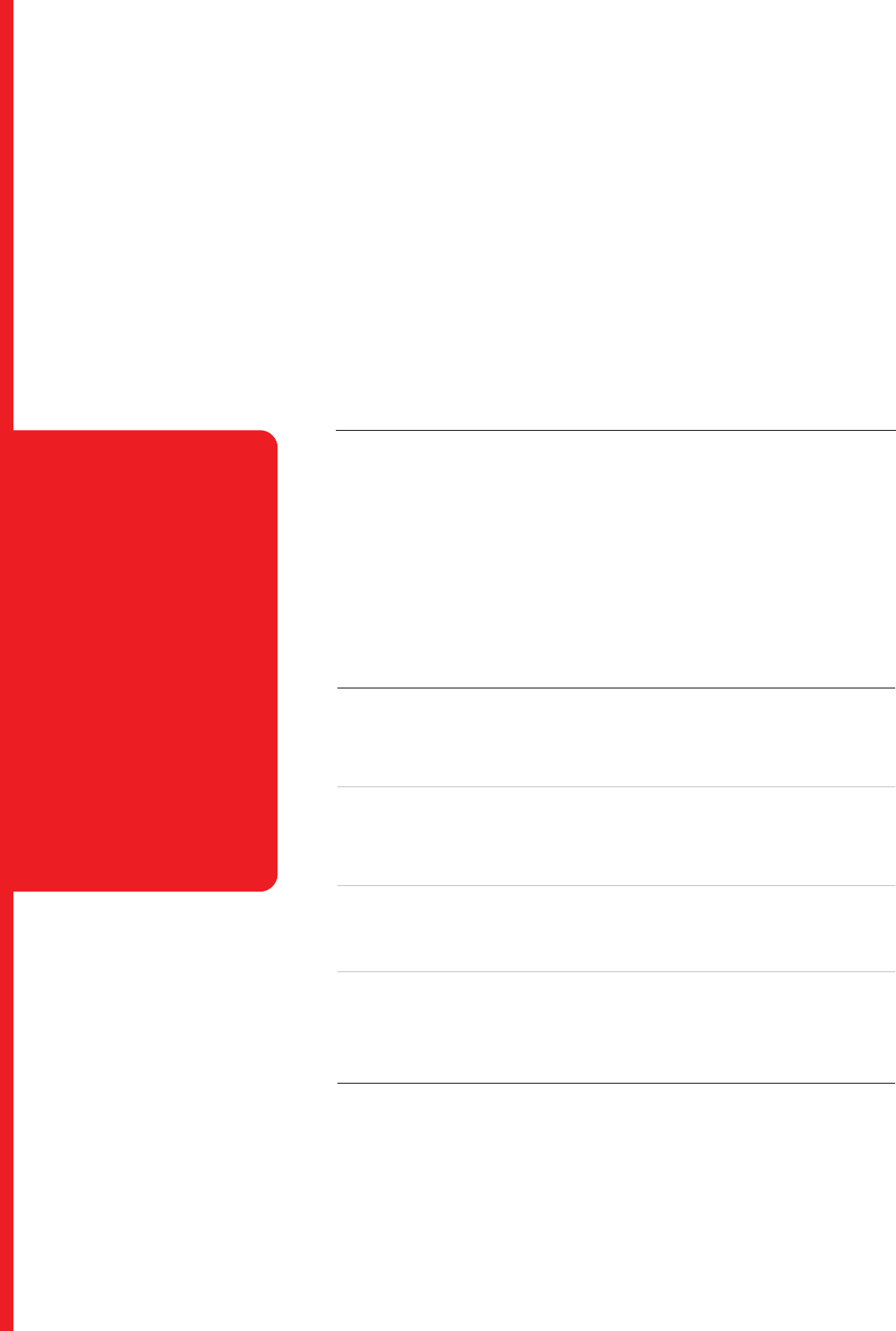
14
La Trobe University
BEFORE YOU CAN ENROL IN YOUR COURSE, YOU NEED TO MEET
OURACADEMIC AND ENGLISH LANGUAGE REQUIREMENTS
ACADEMIC
REQUIREMENTS
1. TOEFL iBT must have been taken prior to 26
July 2023. Until further notice, TOEFL no longer
offer tests for Australian student visas.
Please note:
y Not all courses accept alternative English tests. Please confirm the international entry requirements of your preferred course
on our website.
y Where you have results from more than one of these English language tests, only your most recent single achievement will be
considered in our admission decision.
y If you successfully complete a La Trobe course and intend to apply for professional registration in Australia, you may need to
meet the relevant accrediting agency’s English language standard.
y Your evidence demonstrating English language proficiency must be no older than two years, unless stated otherwise.
y IELTS One Skill Retake (OSR) allows test takers to retake one of the four test components in either reading, writing, speaking
or listening (once only). For Australian student visas, the Department of Home Affairs accept IELTS test results that include
OSR, with the exception of applications for subclasses 476, 482, and 485 that require scores from a single attempt.
UNDERGRADUATE
At a minimum, you need to have
completed Australian Year 12 (or an
accepted international equivalent)
with a certain grade. You may also
need to meet subject prerequisites.
POSTGRADUATE COURSEWORK
At a minimum, you need to have
completed an Australian Bachelor’s
degree (or international equivalent)
with certain grades. For some degrees,
we may consider prior learning through
work experience or professional
accreditation. Some courses may
have additional entry requirements.
HIGHER DEGREES BY RESEARCH
We offer three types of graduate research
degrees, depending on your goals, and
educational and professional backgrounds.
To find out the entry requirements, visit:
latrobe.edu.au/study/apply/research
ENGLISH LANGUAGE REQUIREMENTS
succeed academically, we have minimum English language requirements based on the
the International English Language Testing System (IELTS) system. However, some courses
may need a higher level of English language proficiency than these minimum scores.
We may also consider other factors when assessing if you meet the language requirements,
such as whether you have studied or worked in an English-speaking country.
Accepted alternatives to IELTS
International
English
Language
Test (IELTS)
Academic
IELTS Overall
6.0, no band
less than 6.0
IELTS Overall
6.5, no band
less than 6.0
IELTS Overall
7.0, no band
less than 6.5
IELTS Overall
7.0, no band
less than 7.0
IELTS Overall
7.5, no band
less than 7.0
United Kingdom
Visa and
Immigration
International
English
Language Test
(IELTS)
IELTS Overall
6.0, no band less
than 6.0
IELTS Overall
6.5, no band less
than 6.0
IELTS Overall
7.0, no band less
than 6.5
NA IELTS Overall
7.5, no band less
than 7.0
Pearson Test
of English
(Academic)
(PTE)
Pearson Test
of English (PTE)
Overall score
of 50 with no
communicative
skill score less
than 50
Pearson Test
of English (PTE)
Overall score
of 58 with no
communicative
skill score less
than 50
Pearson Test
of English (PTE)
Overall score
of 65 with no
communicative
skill score less
than 58
Overall score
of 65 with no
communicative
skill score less
than 65
Pearson Test
of English (PTE)
Overall score
of 73 with no
communicative
skill score less
than 65
Test of English
as a Foreign
Language
internet-based
test (TOEFL iBT)
1
Overall score
of 64 with 13 in
Reading, 12 in
Listening, 18 in
Speaking and 21
in Writing
Overall score
of 79 with 13 in
Reading, 12 in
Listening, 18 in
Speaking and 21
in Writing
Overall score
of 94 with 19 in
Reading, 20 in
Listening, 20 in
Speaking and 24
in Writing
Overall 98 with
24 in Reading, 24
in Listening, 23 in
Speaking and 27
in Writing
Overall 102 with
24 in Reading, 24
in Listening, 23 in
Speaking and 27
in Writing
Cambridge
Certificate
of Advanced
English (CAE)
/ Cambridge
Certificate of
Proficiency in
English (CPE)
169 with no less
than 169 in any
component
176 with no less
than 169 in any
component
185 with no less
than 176 in any
component
191 with no less
than 185 in any
component
191 with no less
than 185 in any
component
WORK-BASED LEARNING
During some courses, you will have
the opportunity to participate
in a work-based learning (WBL)
placement, designed to allow you to
extend your formal learning beyond
the classroom. WBL provides the
opportunity to take your learning
into a workplace and test your
knowledge in a professional,
real-world environment.
Some courses include compulsory
WBL subjects, but we also offer
a range of elective WBL subjects,
both cross-discipline and subject-
specific. We’ll source placements
for some subjects on your behalf,
while others require you to source
your own. If you’re required to
source your own, our staff will
support you through the process.
Students undertaking placements
regionally are also eligible to access
additional support under the
Regional Reward program.
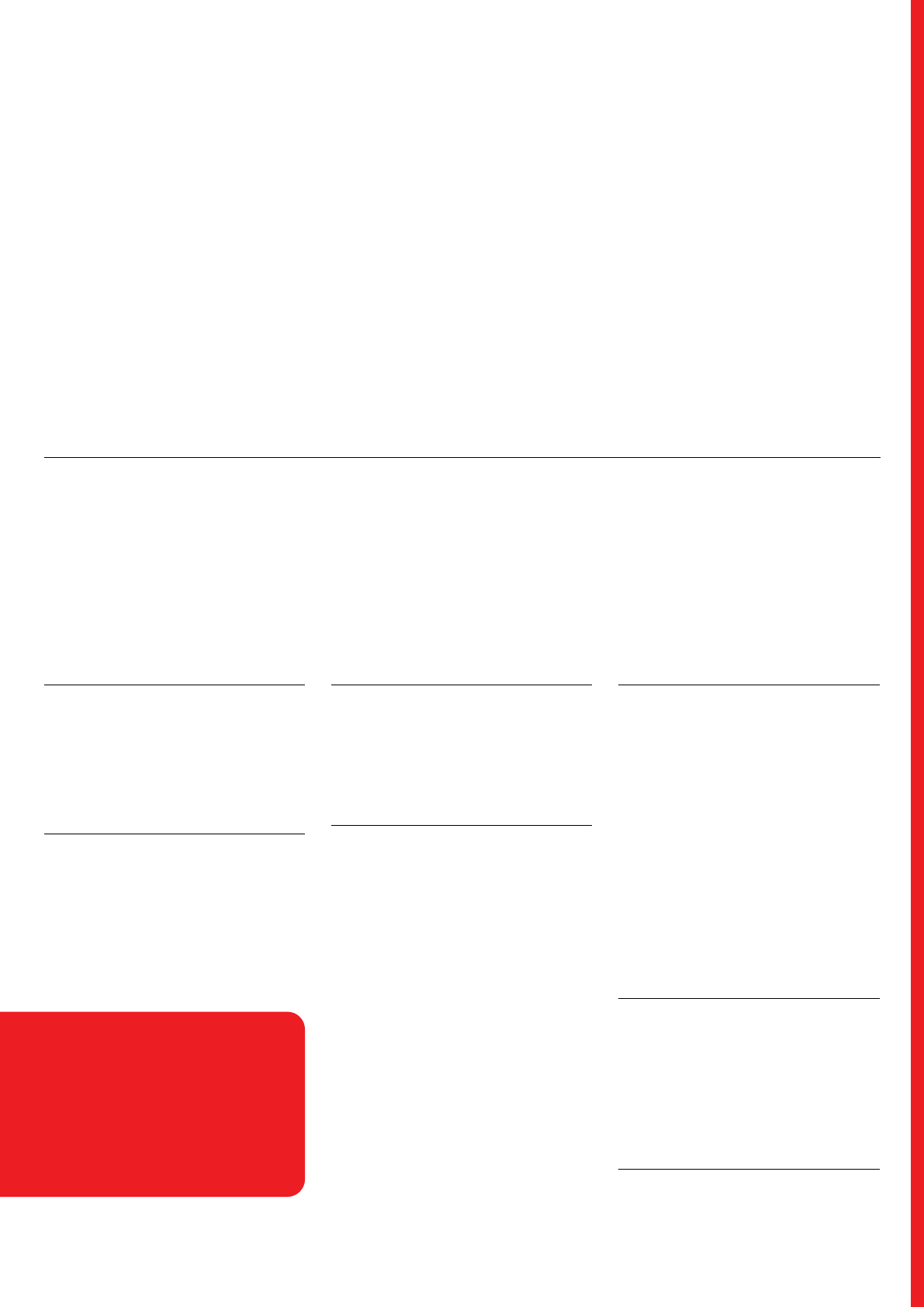
WE CAN’T WAIT TO WELCOME YOU TO LA TROBE. WHEN YOU’RE READY TOAPPLY,
WE’RE HERE TO HELP YOU WITH EVERY PART OF THE PROCESS – FROMHELPING
YOU FIND THE RIGHT COURSE TO PREPARING YOU FOR DAY ONE.
1. CHOOSE YOUR COURSE
Find a course in this guide, then head online
to find out all the details.
Want to speak to someone about which
course is right for you? We’re here to help:
latrobe.edu.au/international/contact
2. CHECK THE ENTRY REQUIREMENTS
Make sure you understand your course’s
entry requirements, including academic
and English language requirements.
This guide lists indicative requirements
for our courses. If you know the
course you want to study, check its
full entry requirements online:
latrobe.edu.au/international/study
3. CHECK YOUR PATHWAY OPTIONS
Need support to meet your course’s entry
requirements? We offer English language and
pathway programs through our on-campus
latrobe.
edu.au/study/apply/pathways/international
4. GET YOUR DOCUMENTS READY
You’ll need to scan and upload your
documents to the International Online
Application System. The documents
required include:
– copies of your academic qualifications
in your language and in a certified
English translation. You’ll need to
submit your originals or certified
copies of academic qualifications
when you accept your offer.
– evidence of your English
language proficiency
– any other information specified in the
entry requirements for your course
– your course syllabus, if you're applying
for advanced standing (credit)
– copy of passport
– current visa (if applicable)
– any additional forms required.
If you need help completing your application
and would like to be in touch with one of our
team members, please don't hestitate to
contact us via our website at latrobe.edu.au/
international/contact/question
5. SUBMIT YOUR APPLICATION
We accept applications throughout the year.
Our International Online Application System
can be accessed here:
student-latrobe.studylink.com
from certain regions to apply via an
authorised agent. If you are unsure whether
you will need to apply via an agent or not,
please submit an online enquiry on our
website at: latrobe.edu.au/international/
contact/question
If you need any help completing your
online application as a direct student,
or have any questions about the process,
we're always here to help.
6. ACCEPT YOUR OFFER
Once we’ve assessed your eligibility, if you’re
successful, we’ll provide you with a letter of
offer and offer acceptance form. We’ll also
provide a guide on the next steps to accept
your place in your course. Learn more here:
latrobe.edu.au/study/apply/international/
accepting-offer
7. PREPARE FOR STUDY AT LATROBE
Our International Student Services team will
help you prepare for study, and when it’s
time to join us on campus, they’ll help you
get ready for life in Australia. Here’s how:
latrobe.edu.au/international/prepare
latrobe.edu.au/international 15
HOW TO APPLY
FEES
FIND AN AGENT
Want some extra support?
Our authorised agents can help
you with advice and information
on the application process.
University agent here: latrobe.edu.au/
international/contact/agent-finder
TUITION FEES ARE THE PRIMARY COST OF STUDYING ONE OF OUR COURSES.
THEYARE DIFFERENT FOR EVERY COURSE AND ARE BASED ON YOUR STUDY LOAD
You can find indicative annual fees
throughout this guide. These are based
on an annual study load of 120 credit
points, except where we indicate that
they are based on a different study
load. If you change your study load,
your course fees will also change.
You can estimate a total cost for your
course based on these indicative fees,
but remember – fees can change year
by year. We reserve the right to vary
fees on an annual basis. If we do change
the fees for a course, the change takes
effect on 1 January the next year.
You may also need to pay other course
costs, such as field trips or buying
equipment. If a course requires you
to pay additional costs, it will be
outlined in the ‘Fees and scholarships’
section on your course page.
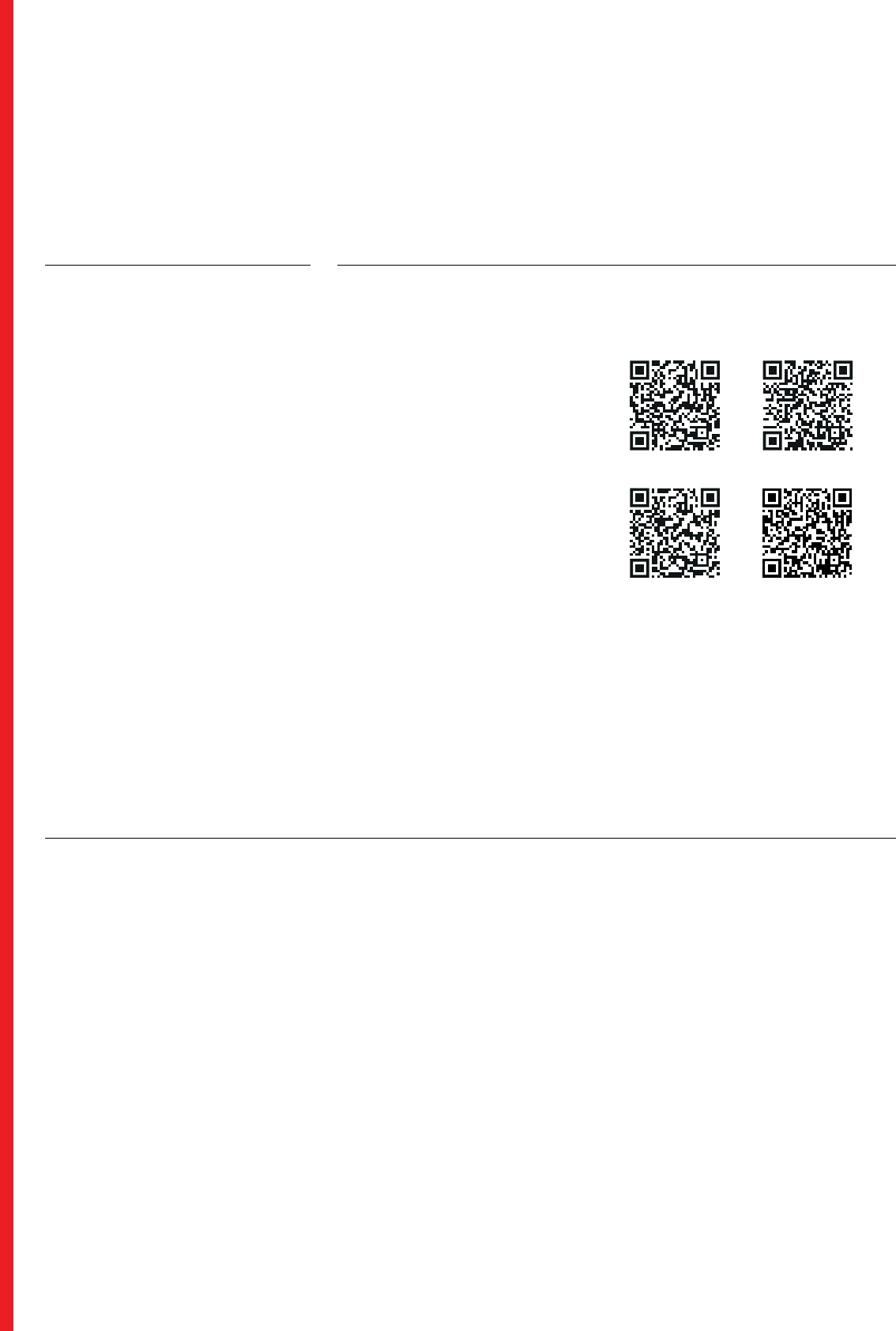
16
La Trobe University
LATROBE HIGH ACHIEVER SCHOLARSHIPS
Scholarships are awarded to high-achieving international students
and provide up to a 25% reduction in course fees for selected courses.
Find out more: latrobe.edu.au/international/fees/scholarships
POSTGRADUATE RESEARCH SCHOLARSHIPS
We offer a wide range of postgraduate research scholarships. To find out
more about applying for a research degree, and the scholarships available
to you, visit: latrobe.edu.au/study/apply/international/research
SCHOLARSHIPS
WE KNOW THAT INTERNATIONAL STUDY IS A BIG DECISION. THAT’S WHY WE HAVE
DESIGNED OUR RANGE OF SCHOLARSHIPS TO GIVE YOU THE SUPPORT YOU NEED.
WHETHER YOU ARE INTERESTED IN UNDERGRADUATE AND POSTGRADUATE COURSEWORK
OR POSTGRADUATE RESEARCH, THERE’S A LATROBE SCHOLARSHIP FOR YOU.
Our International Student
Support team are here to help
you feel at home at LaTrobe
University – whether you’re
living in Australia or studying
online – and to support you
to succeed in your studies.
BEFORE YOU ARRIVE IN AUSTRALIA
Pre-departure
Once you’ve accepted your offer, we’ll
contact you about how to complete your
pre-arrival online enrolment. If you have
questions along the way, we’re here to
support you.
all the information you need to prepare
for your arrival in Australia, from an
extensive pre-departure checklist to a
comprehensive Living in Australia webinar,
which covers valuable information regarding
accommodation, transport, food, working,
health services and staying safe.
Check it out at
latrobe.edu.au/international/welcome
Entering Australia
Information regarding the requirements to
enter Australia is found on the Department of
Home Affairs website. It is your responsibility
to read and follow the requirements of the
Australian Government.
ONCE YOU ARRIVE IN AUSTRALIA
Orientation and checking in
The start of the semester orientation
is full of important sessions and social
activities. It’s also a chance to make new
friends and get your first taste of campus
life. For more advice and tips, you can
peer support.
Learn more at
latrobe.edu.au/international/prepare/arrival
While at campus, we also invite you
to come visit us at our welcome zone
meet our team face-to-face and get your
questions answered before starting your
THROUGHOUT THE DURATION
OFYOUR STUDIES
Student advising Career support
Personal support Connect with students
Always available
We’ll stay connected with you for the
a 24-hour student support hotline where
we can help you with anything you may be
concerned about.
Learn more at
latrobe.edu.au/international/life/safety
WE’RE THERE FOR YOU EVERY STEP OF THE WAY
WITH ADVICE, INFORMATION AND SERVICES.
STUDENT SUPPORT
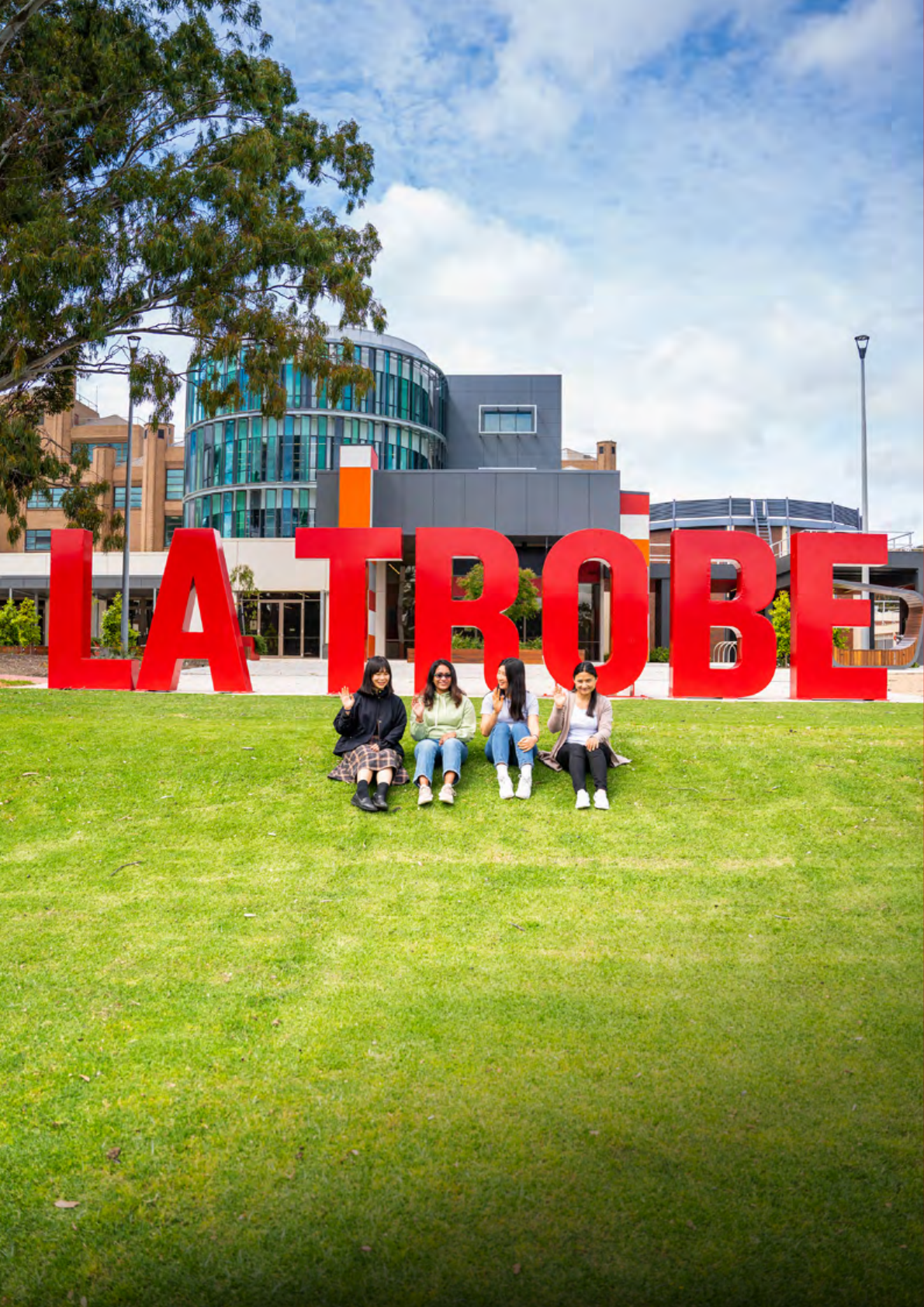
Disclaimer: The information contained in this publication is indicative
only. While every effort is made to provide full and accurate information
at the time of publication, the University does not warrant the currency,
accuracy or completeness of the contents. The University reserves
the right to make changes without notice, at any time in its absolute
discretion, including but not limited to varying admission or assessment
requirements, or varying or discontinuing any course or subject. To the
extent permitted by law, the University does not accept responsibility
for any loss or damage occasioned by use of any of the information
contained in this publication. For course information updates, please
visit: latrobe.edu.au/courses
La Trobe University is a registered provider under the Commonwealth
Register of Institutions and Courses for Overseas Students (CRICOS).
La Trobe University CRICOS Provider Code Number 00115M.
TEQSA PRV12132; Provider Category: Australian University.
DC40452
Published by La Trobe University, October 2023.
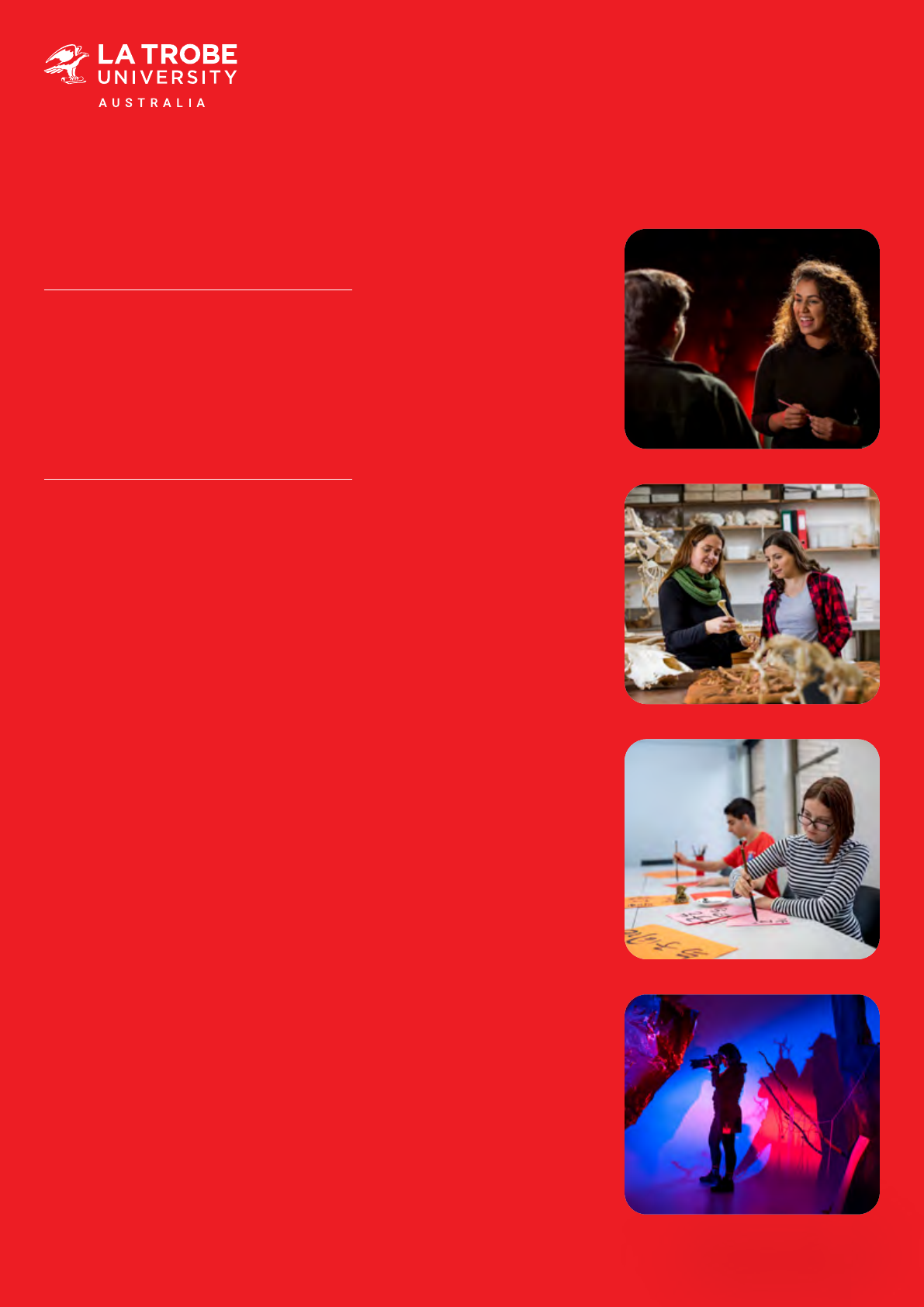
latrobe.edu.au/international
TAKE THE NEXT STEP
Meet us in your country
latrobe.edu.au/international/contact/your-country
Find an agent
latrobe.edu.au/international/contact/agent-finder
Events and webinars
latrobe.edu.au/international/contact/events
STAY CONNECTED
Facebook
La Trobe University
Instagram
@latrobeuni
TikTok
@latrobeuni
Twitter
@latrobe
LinkedIn
La Trobe University
WeChat
LaTrobeUni_AU
Weibo
latrobeuniaus
